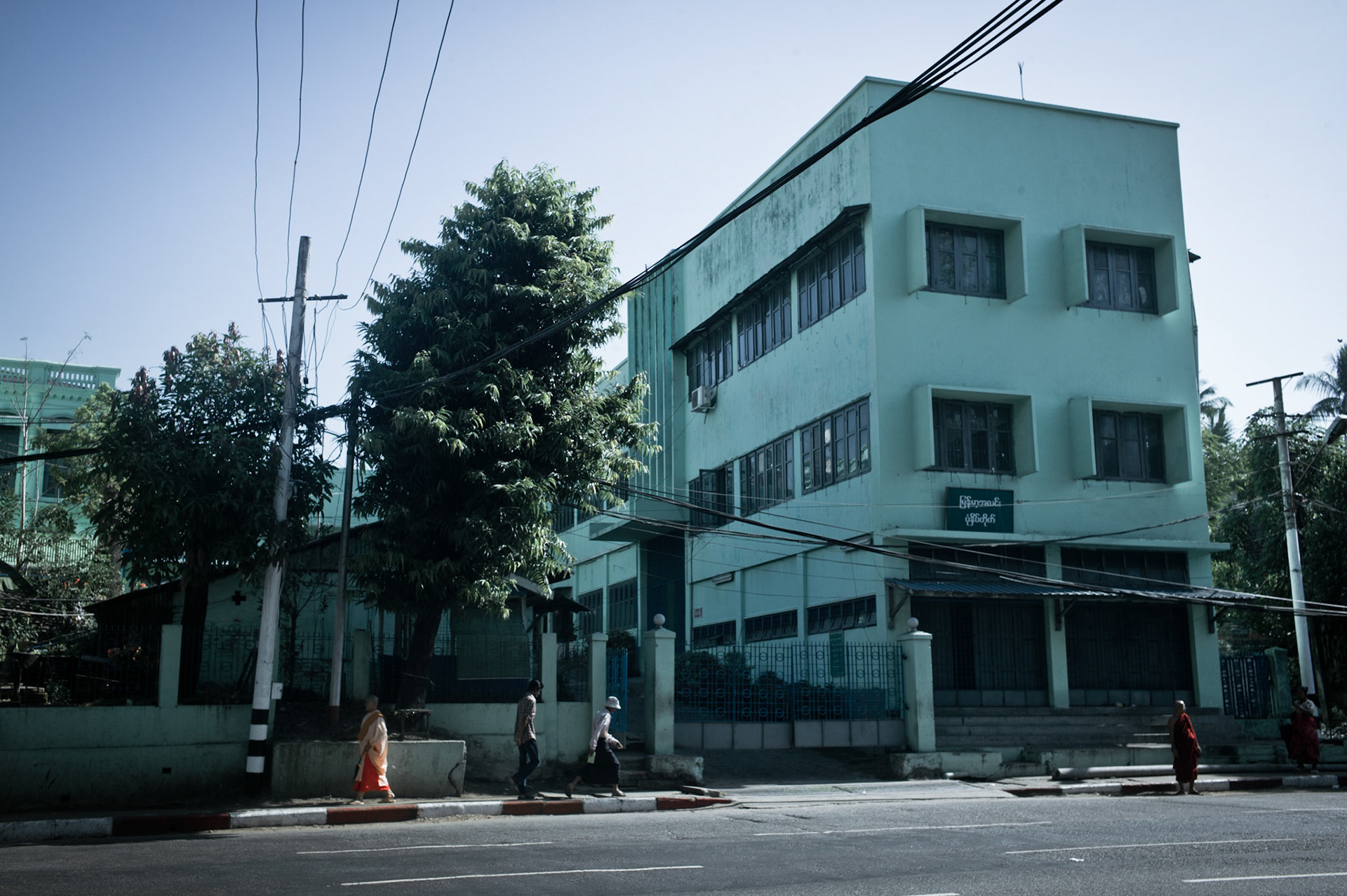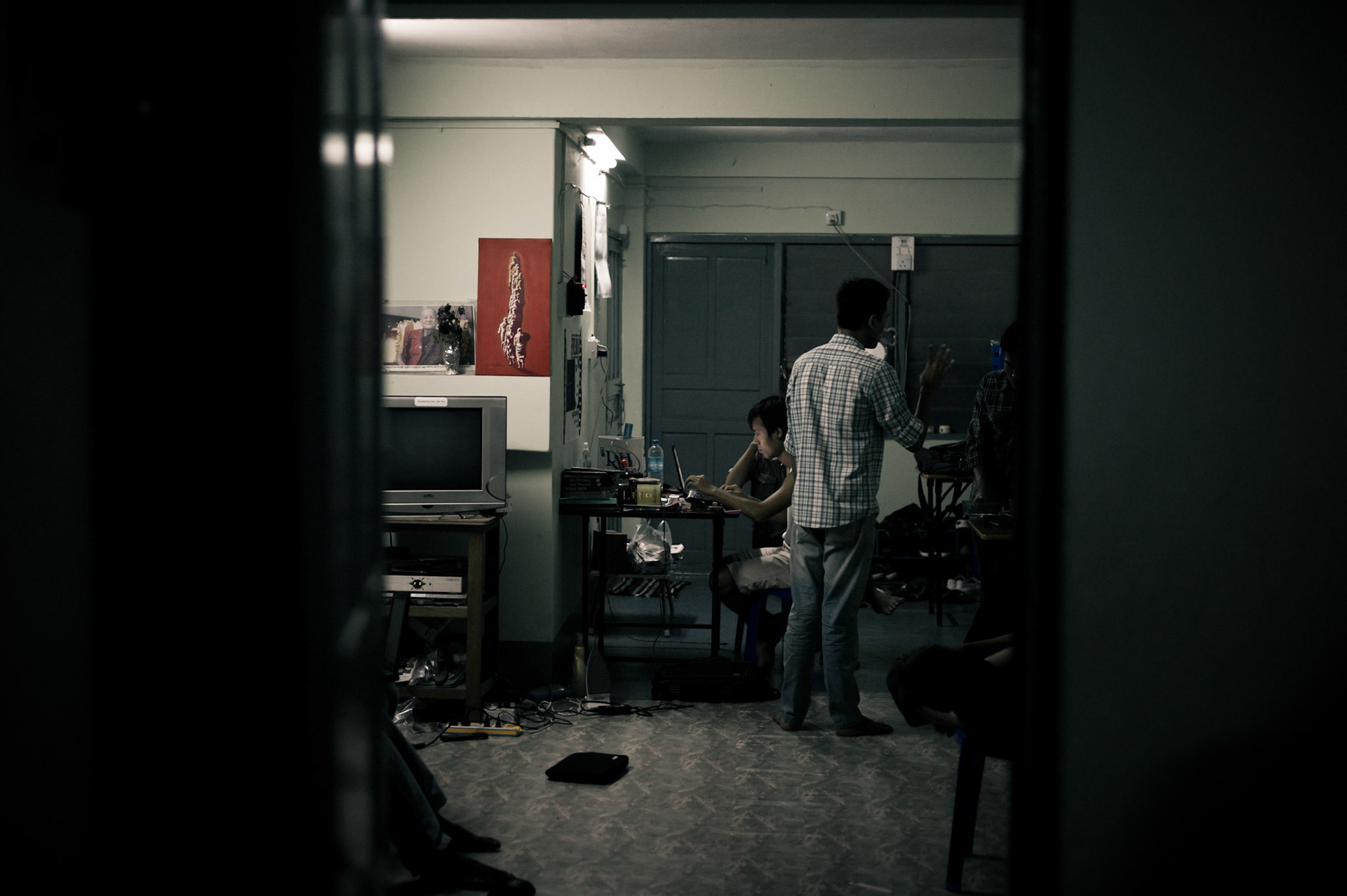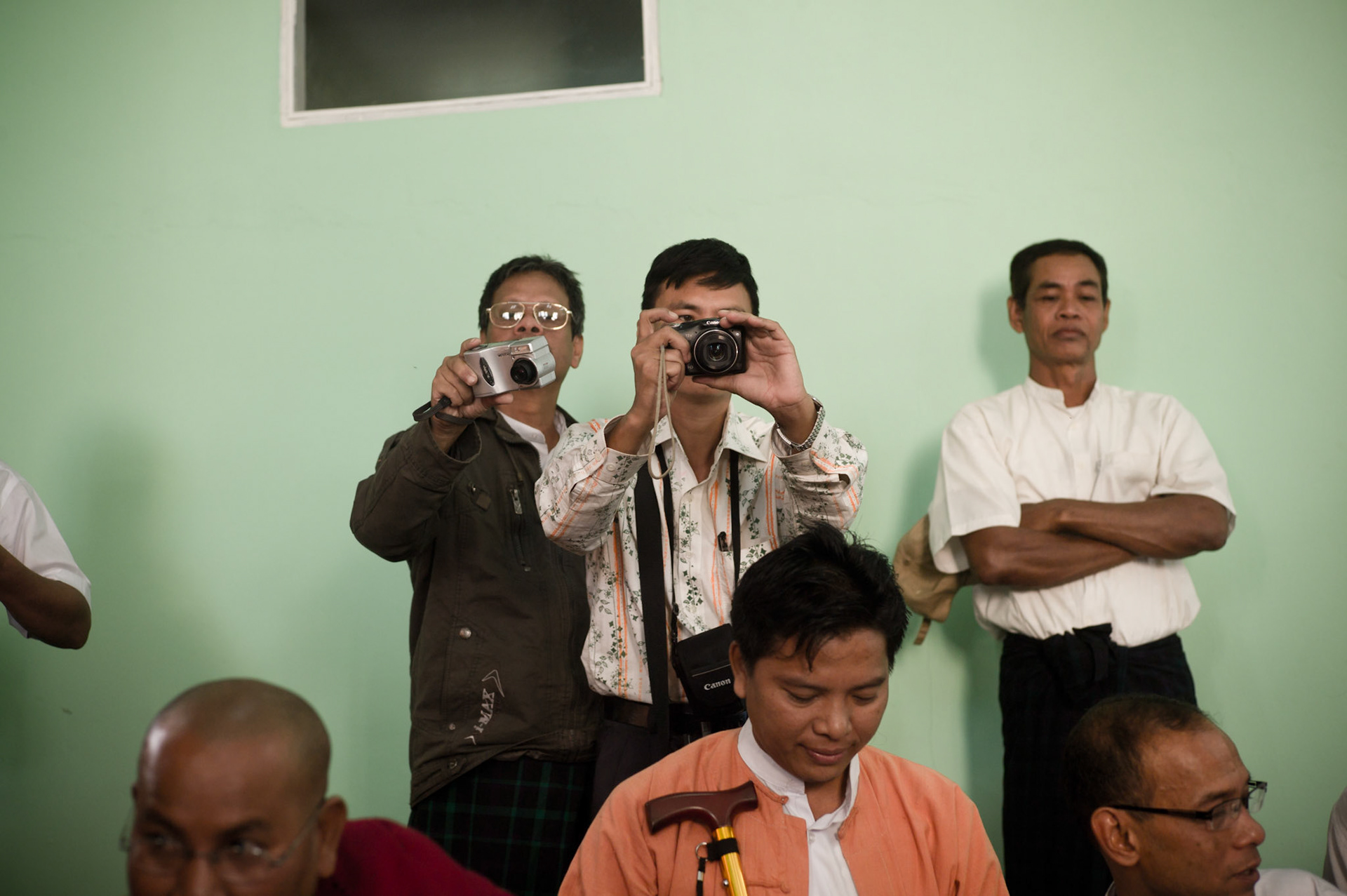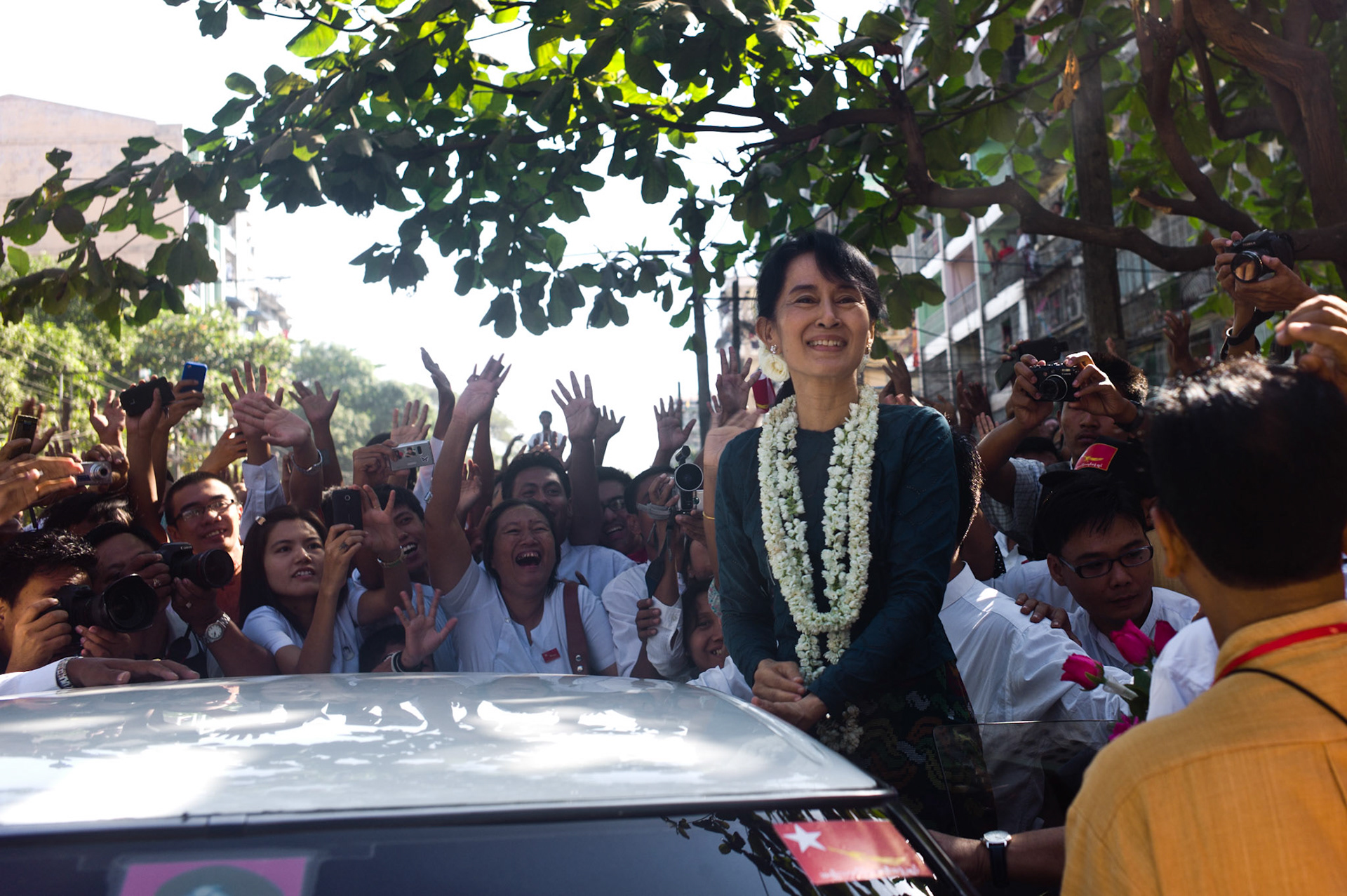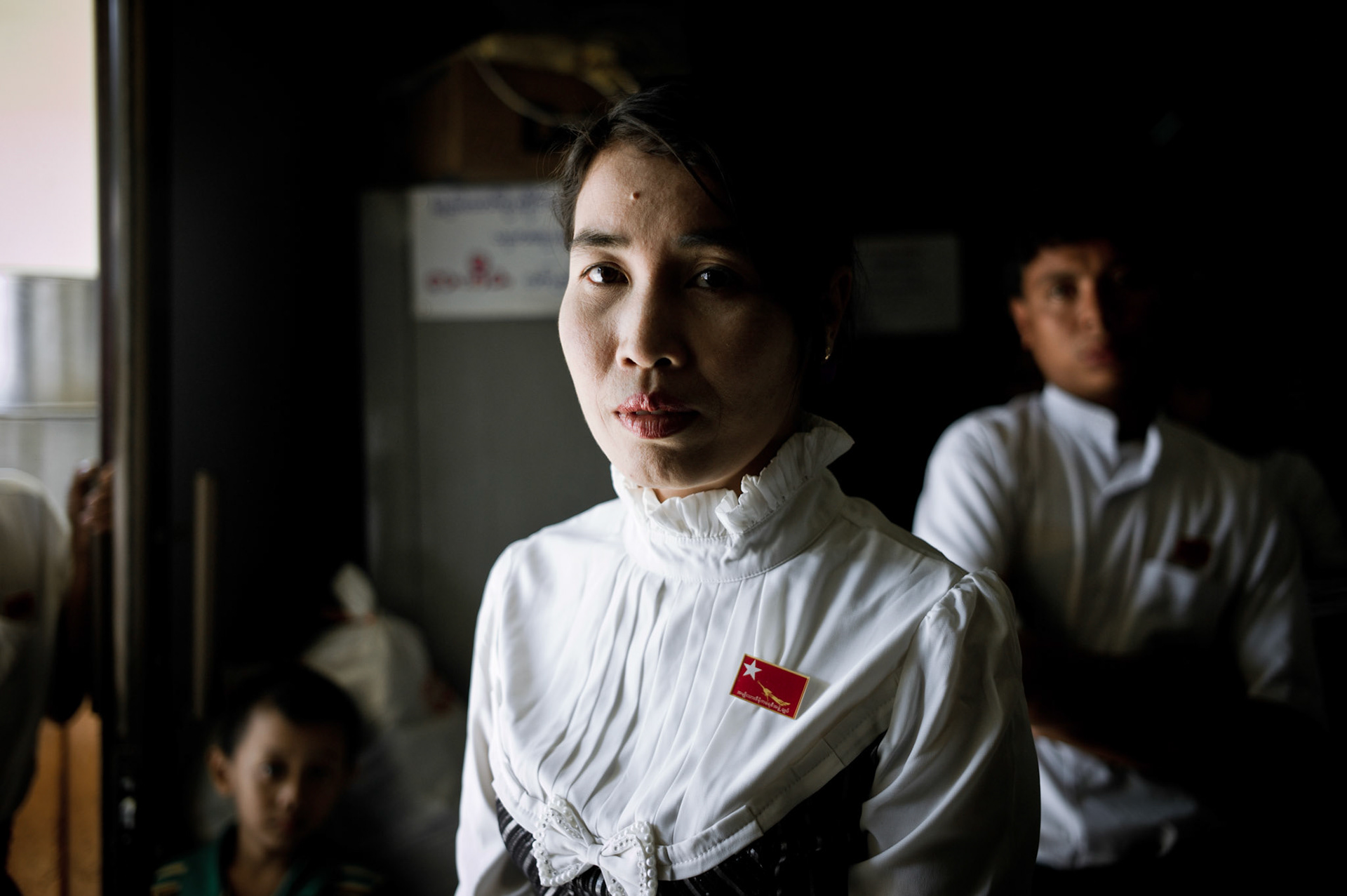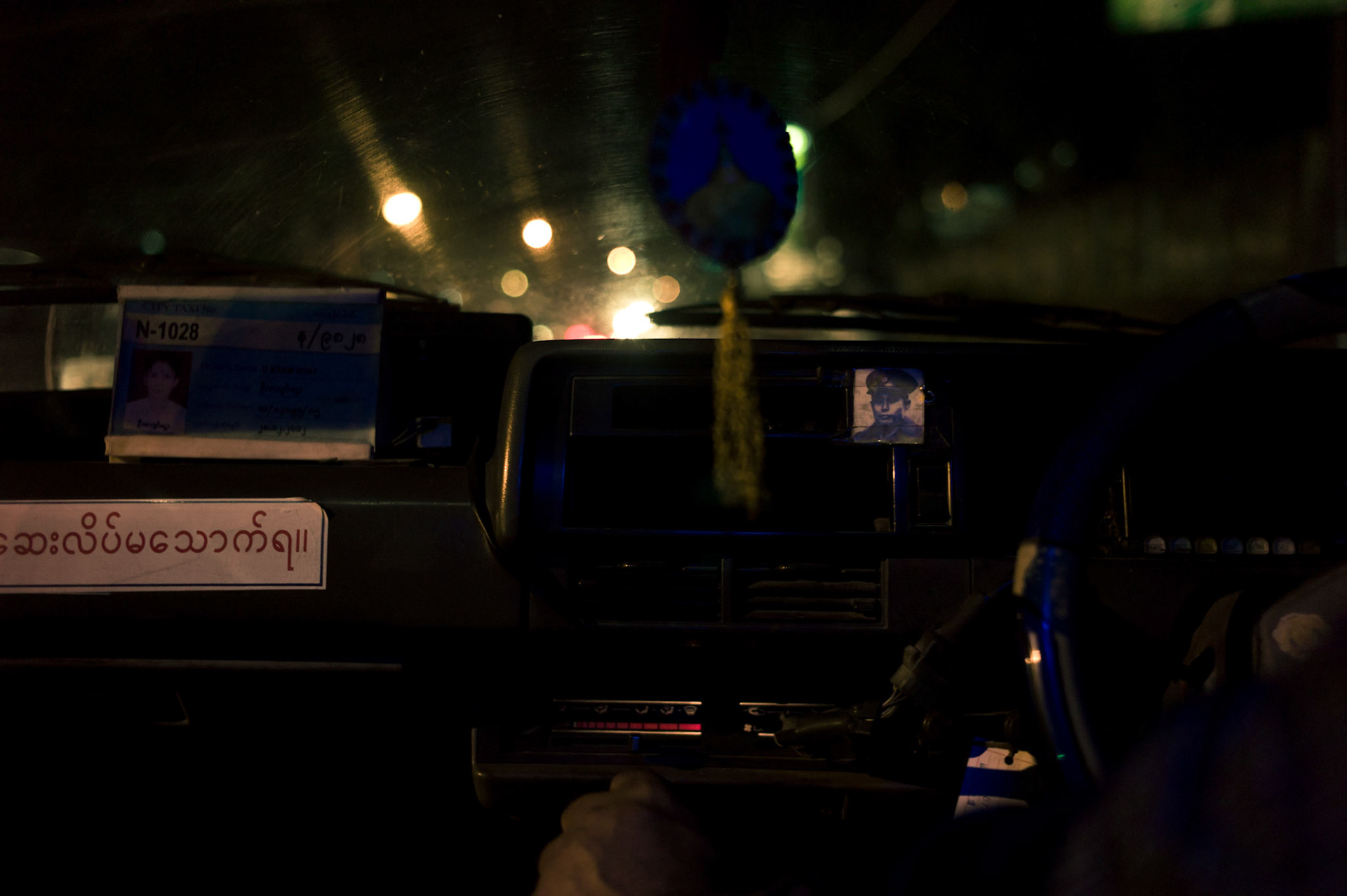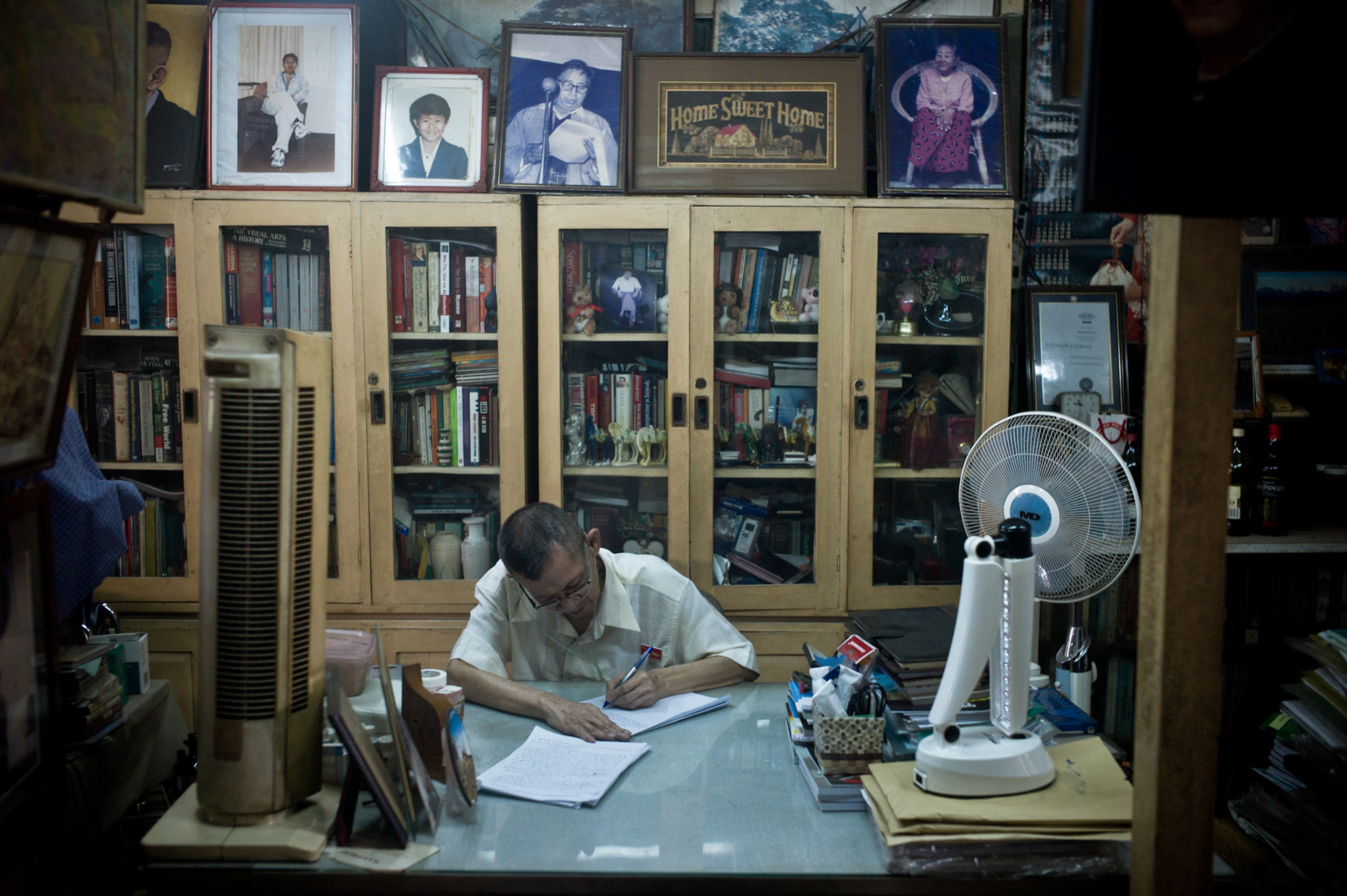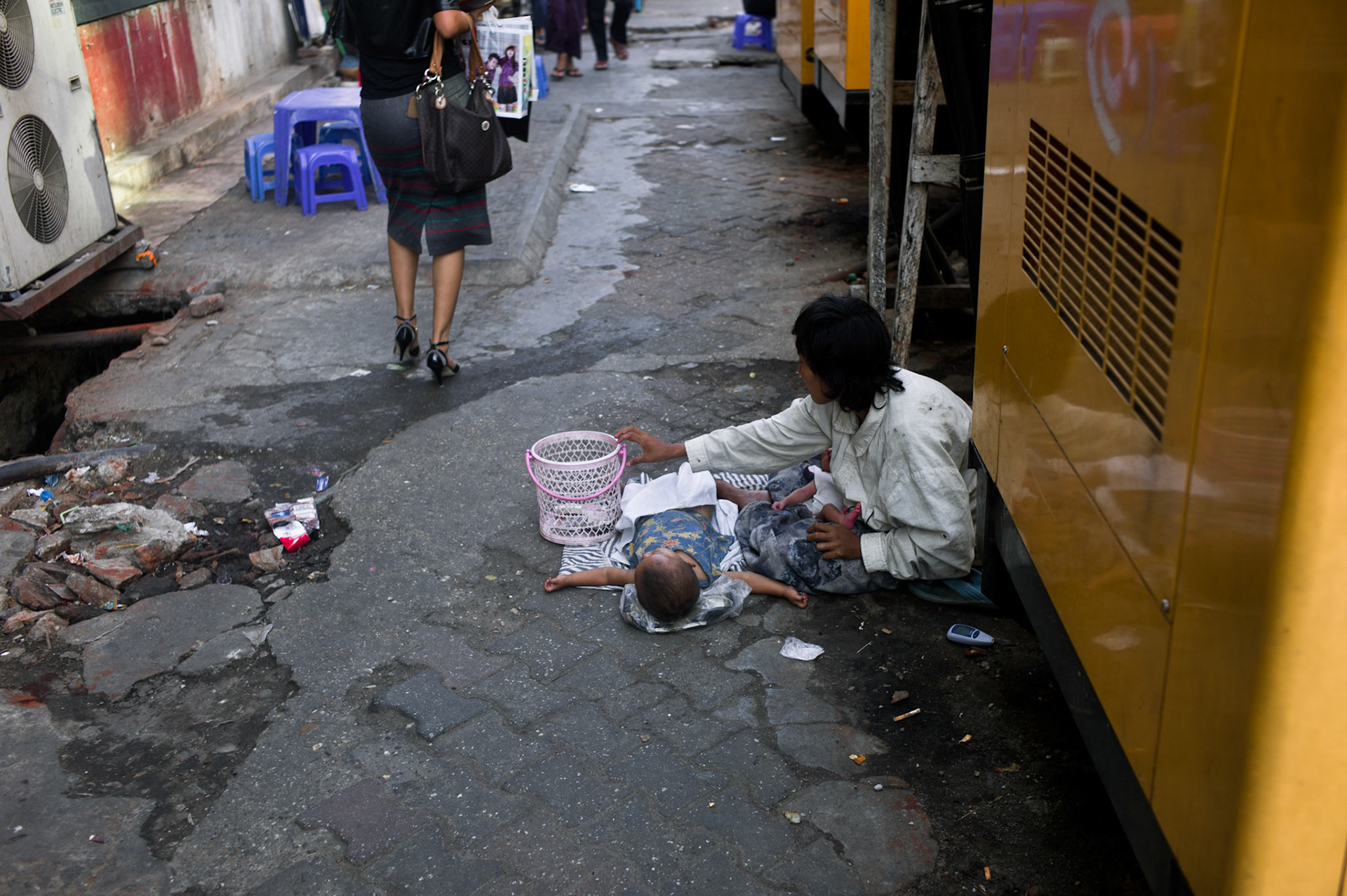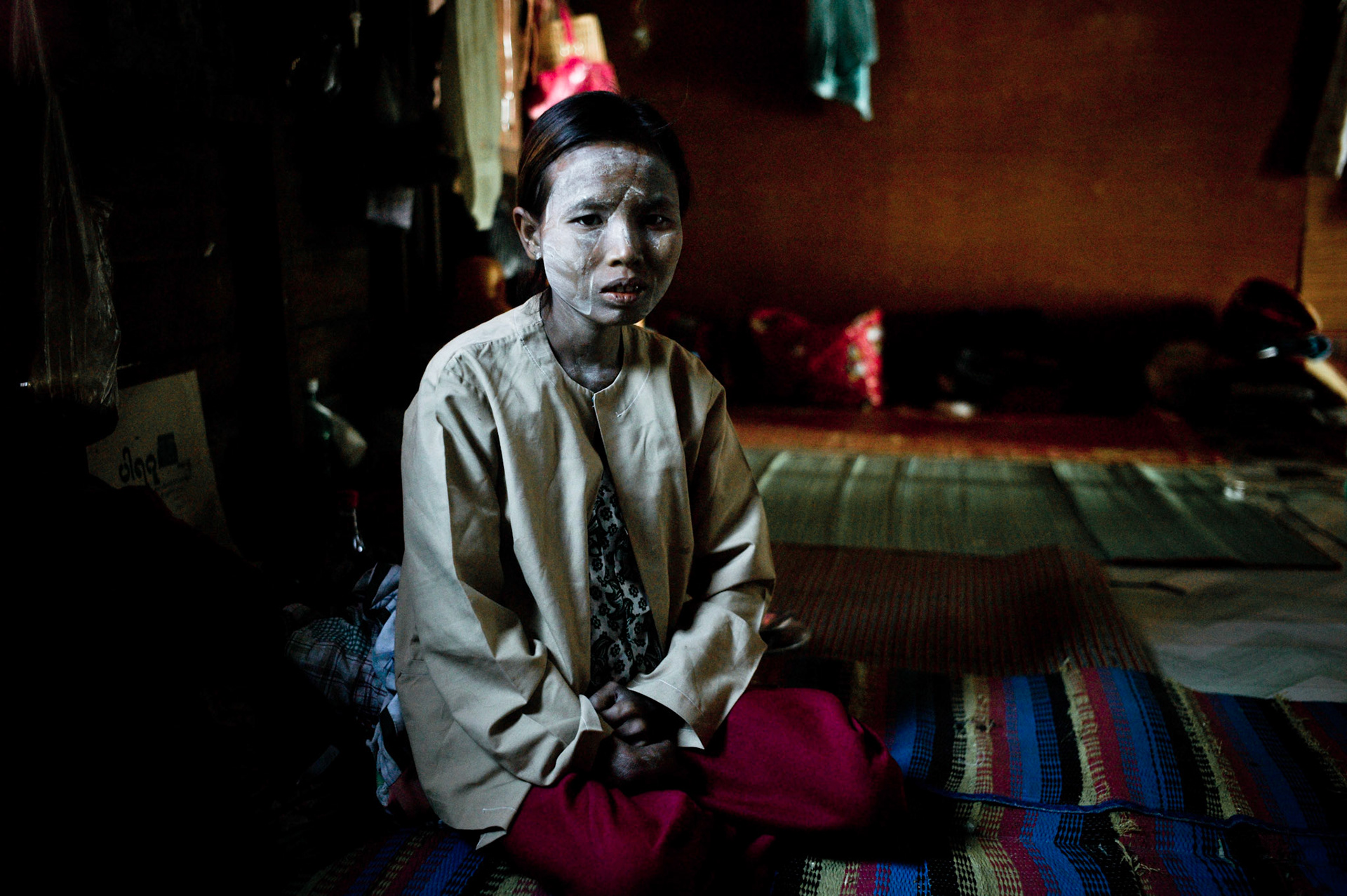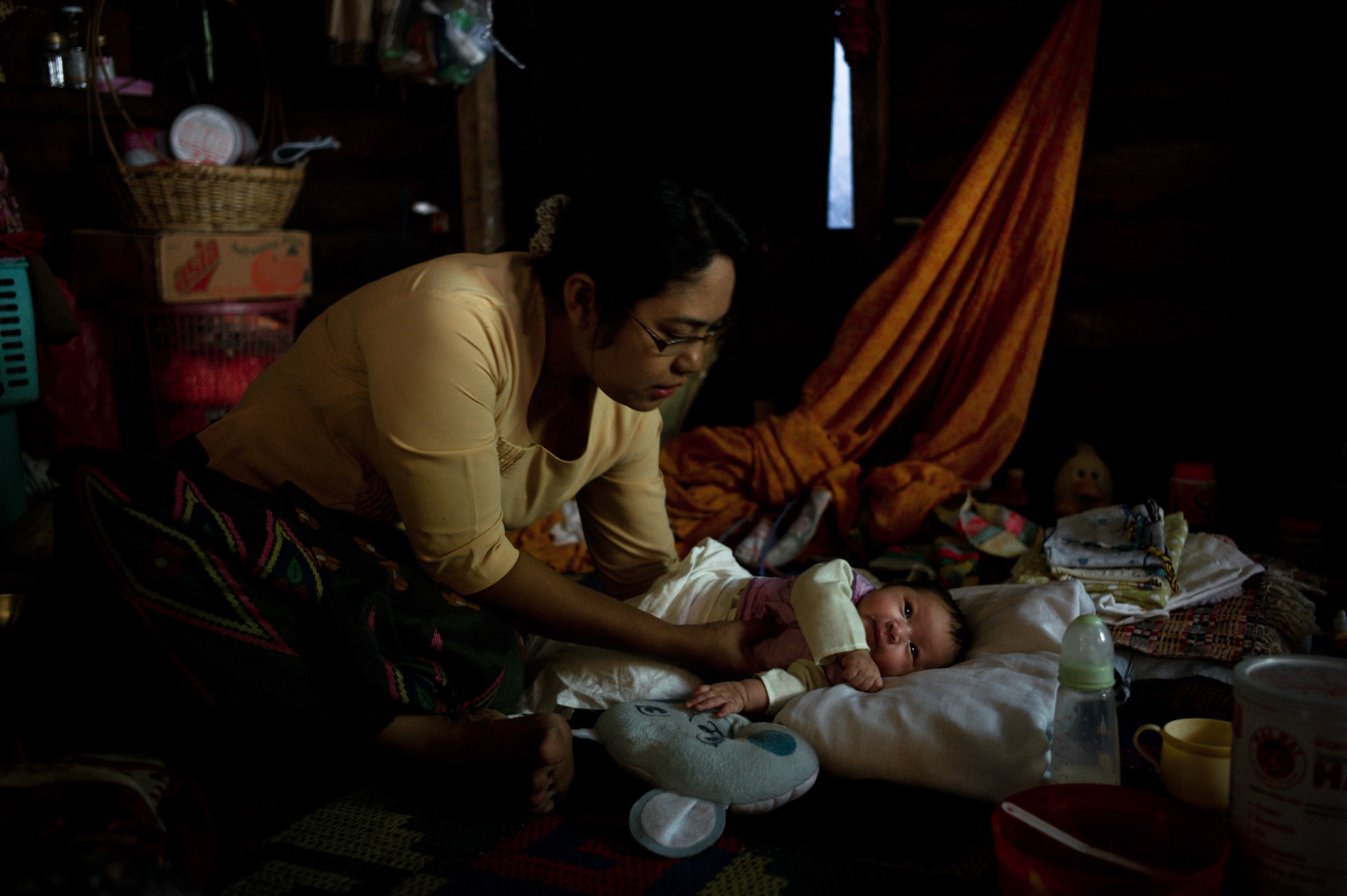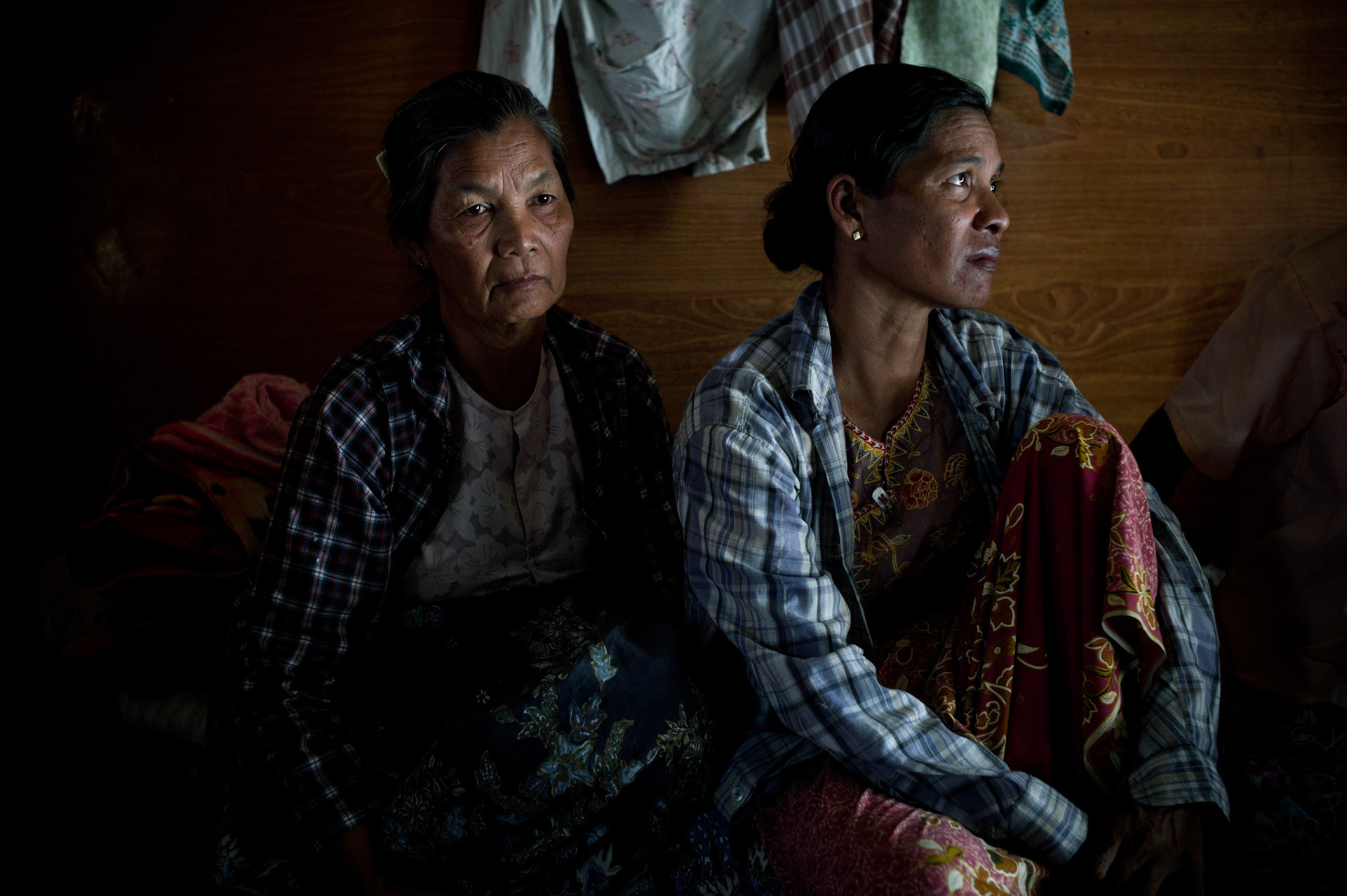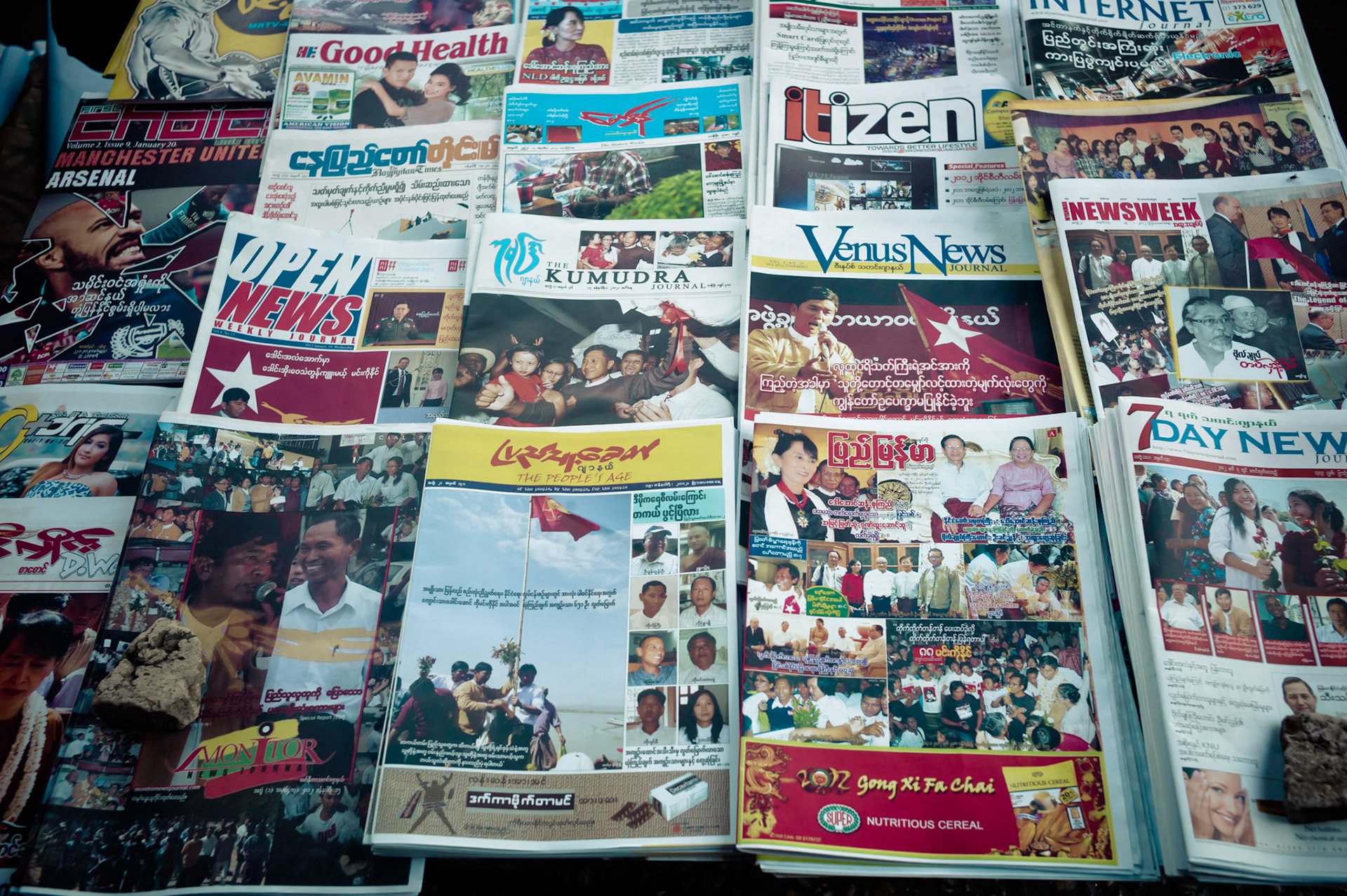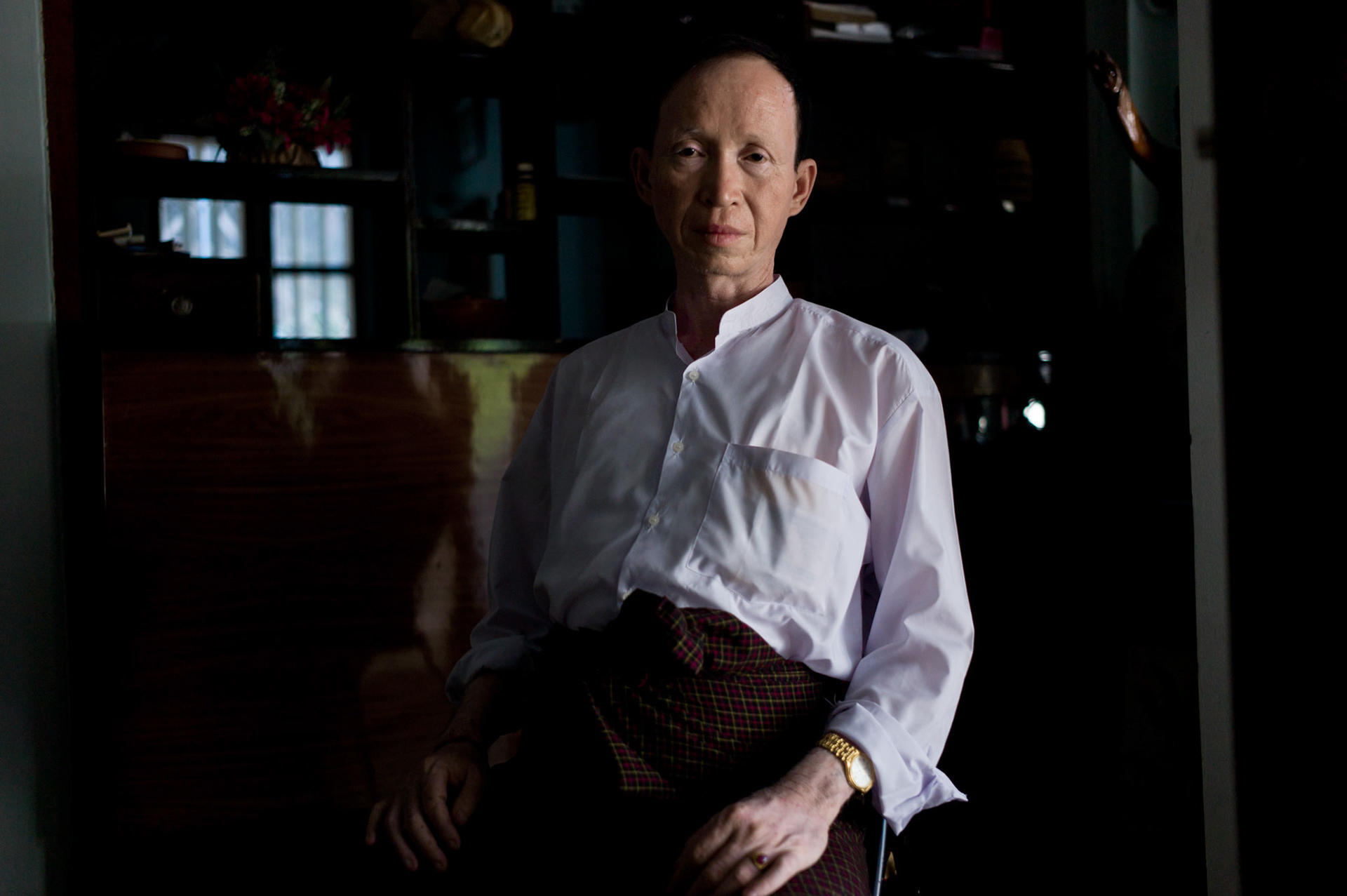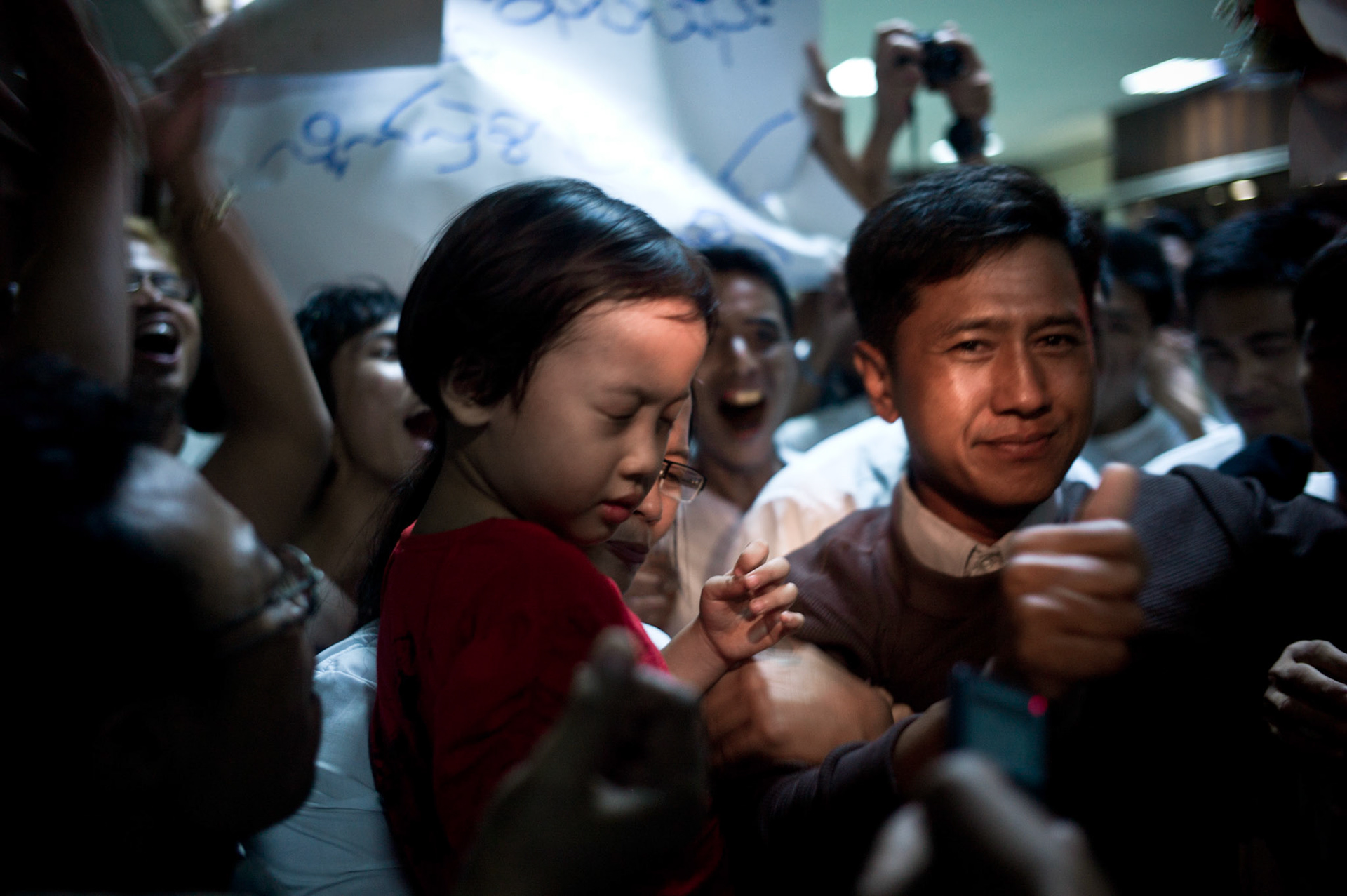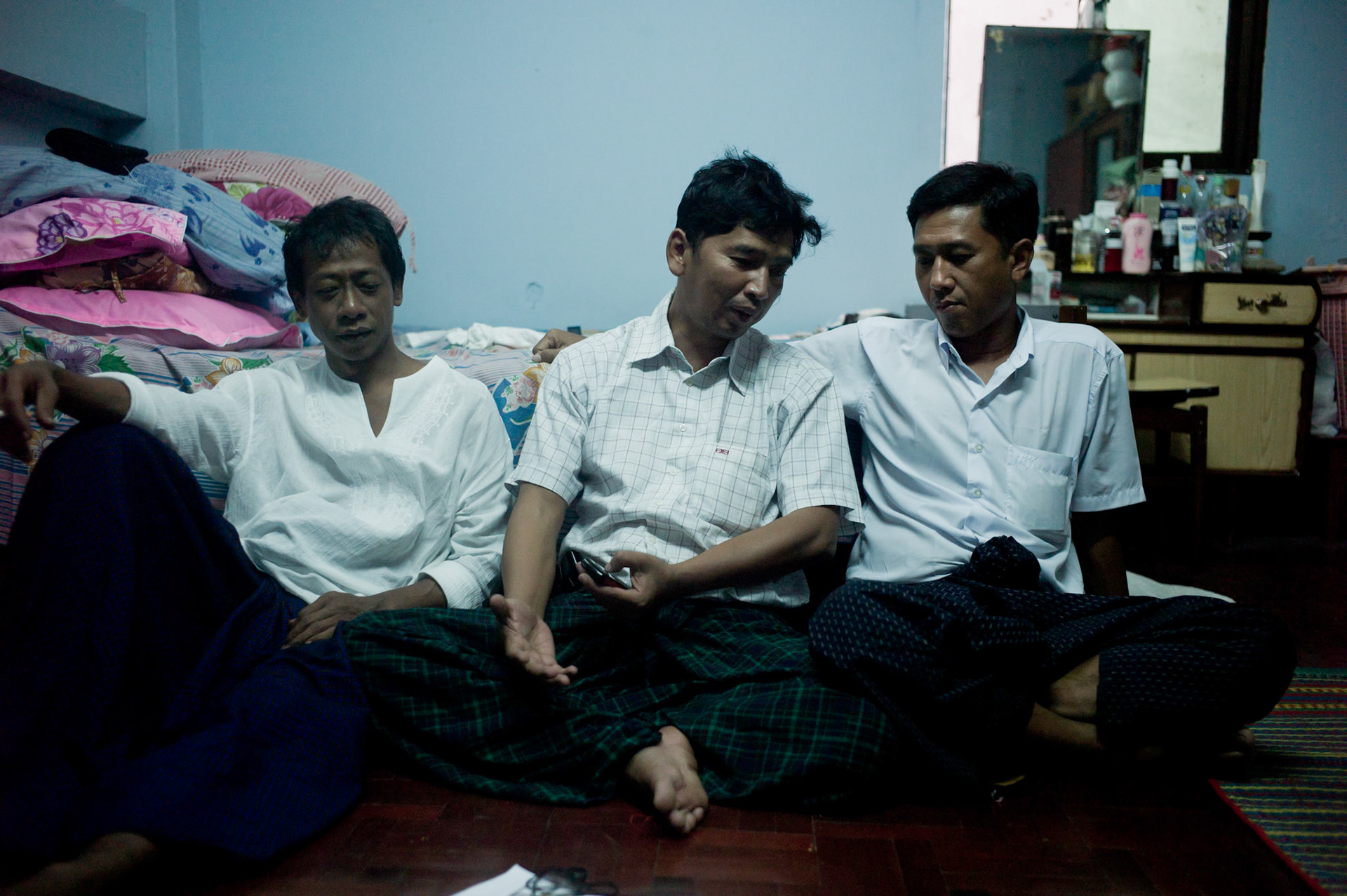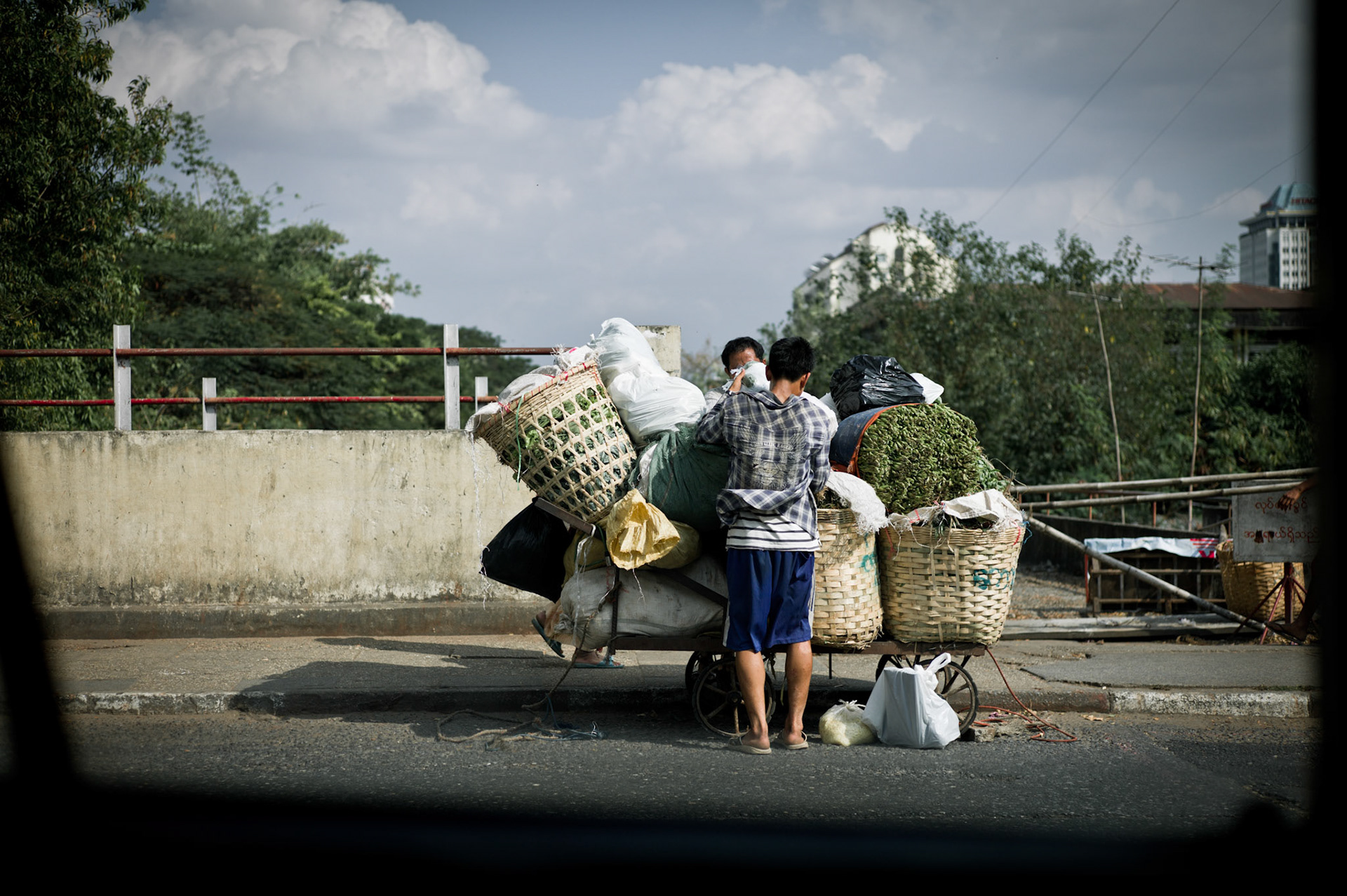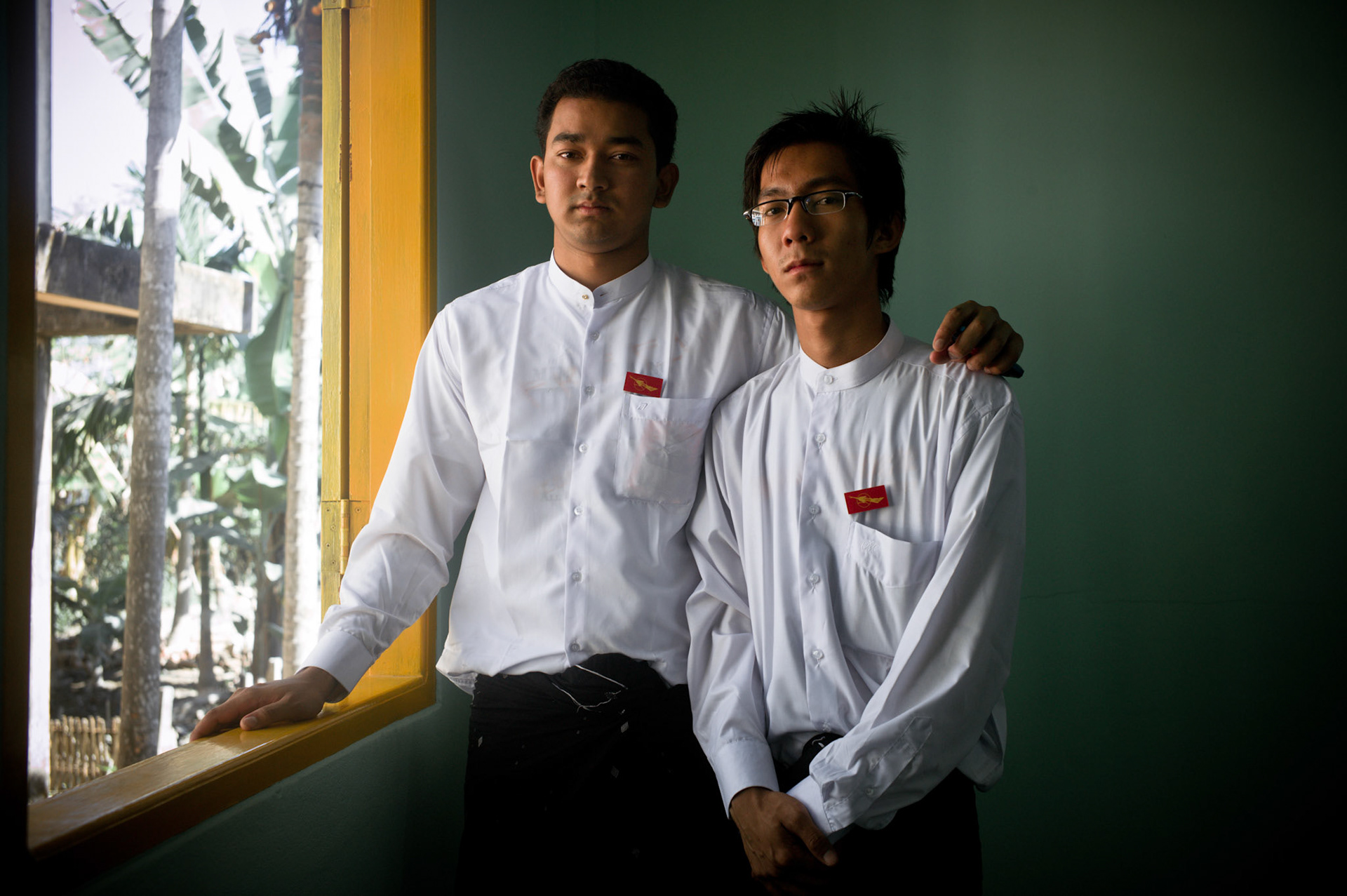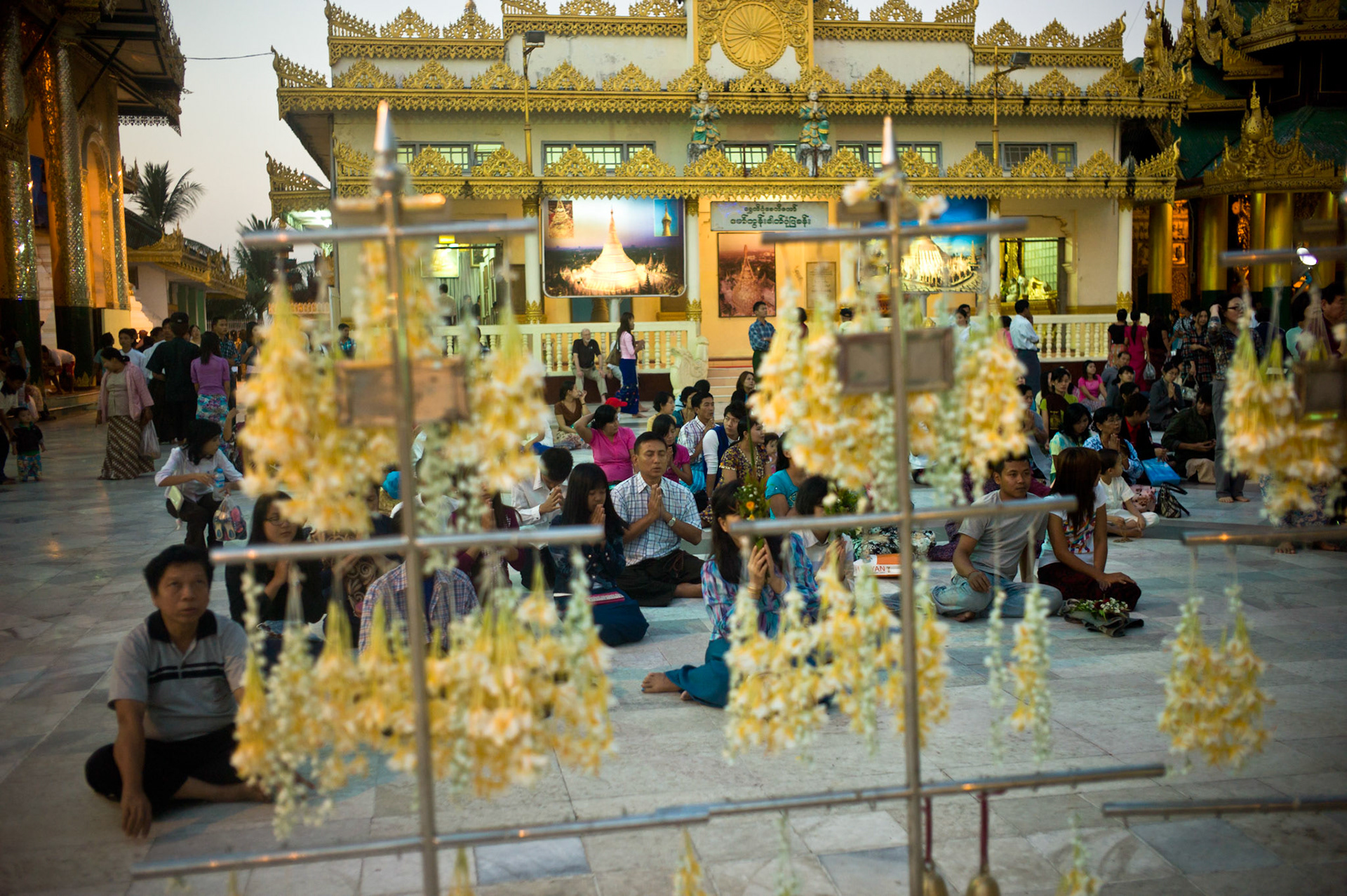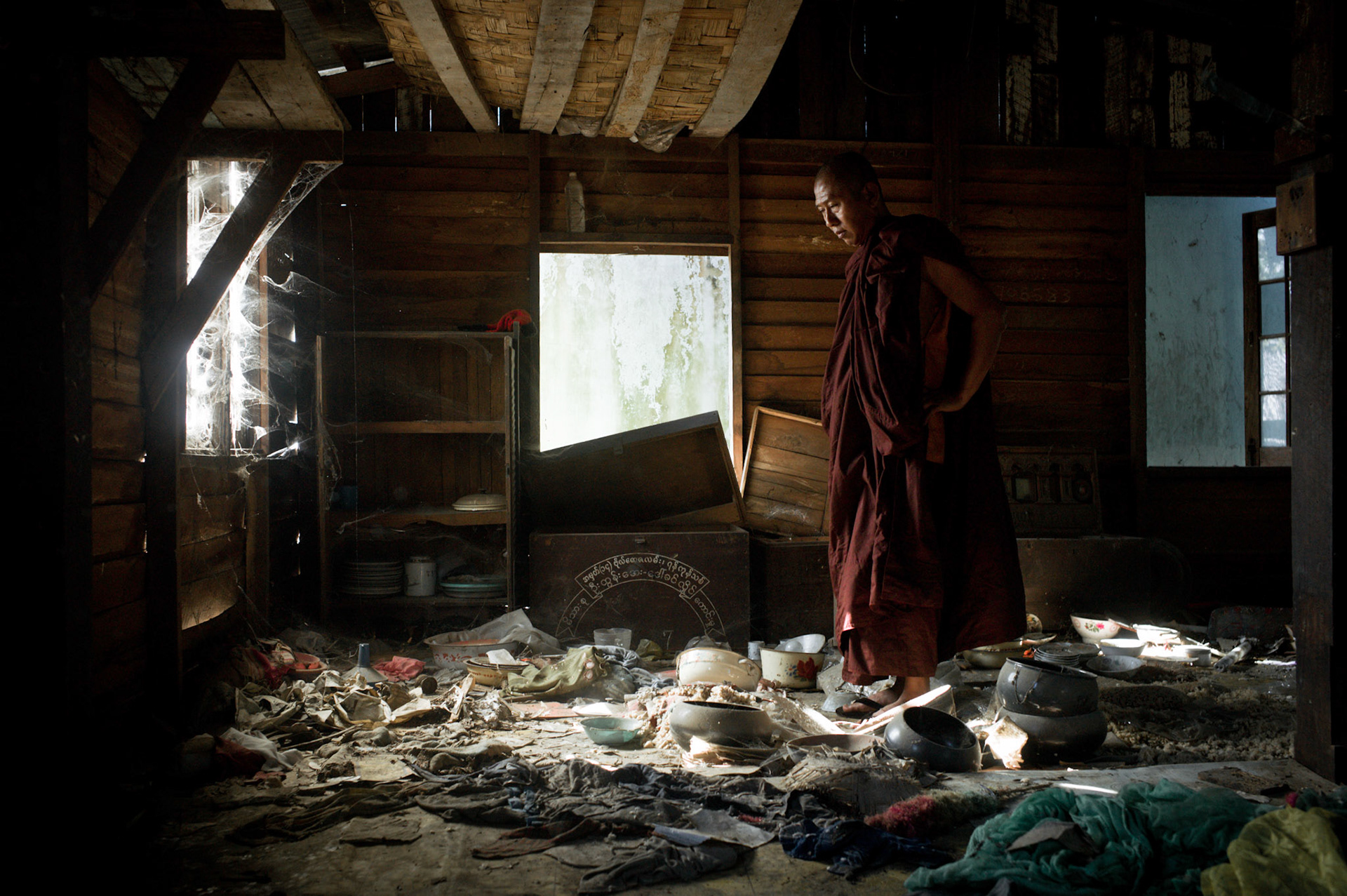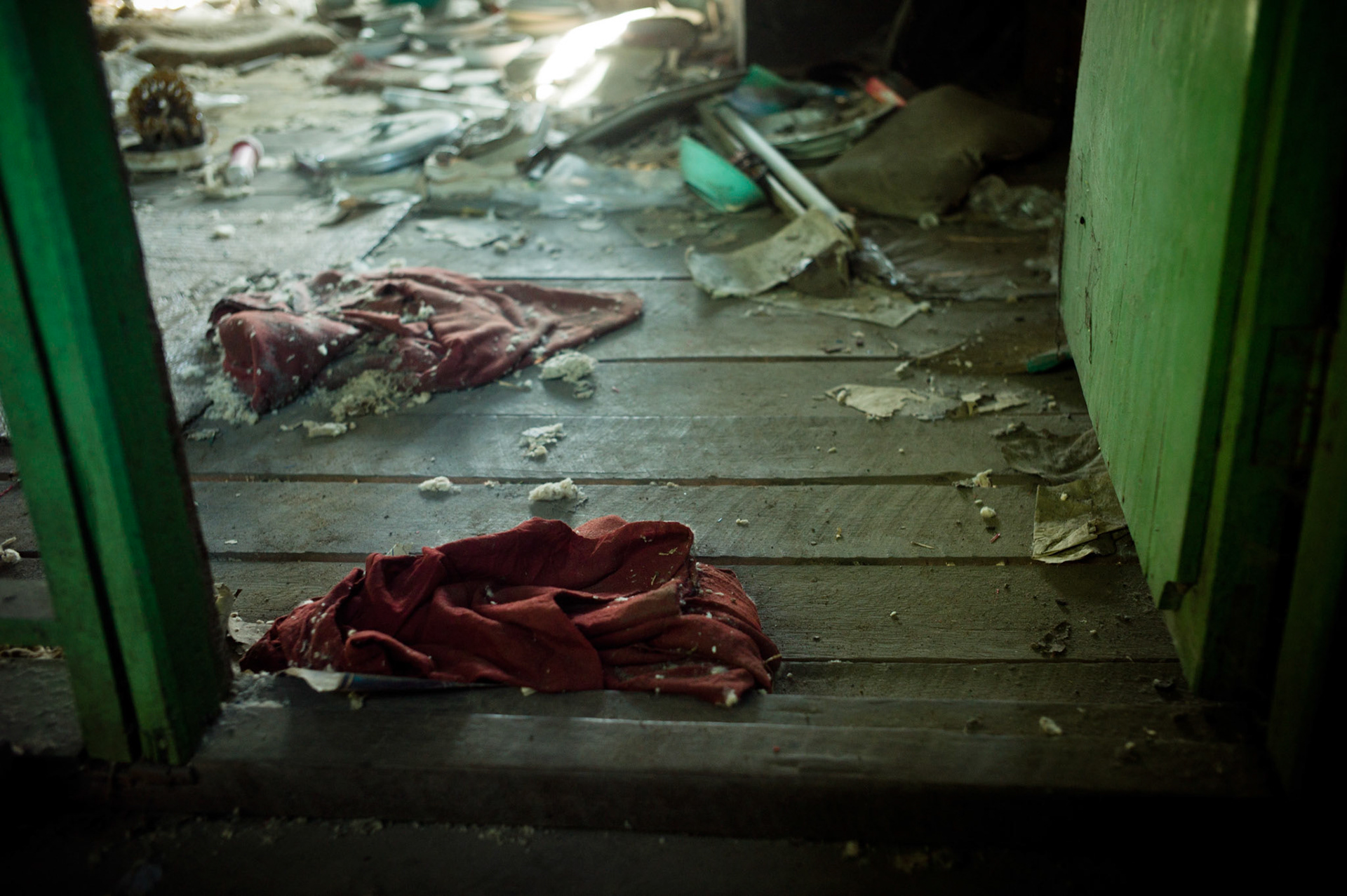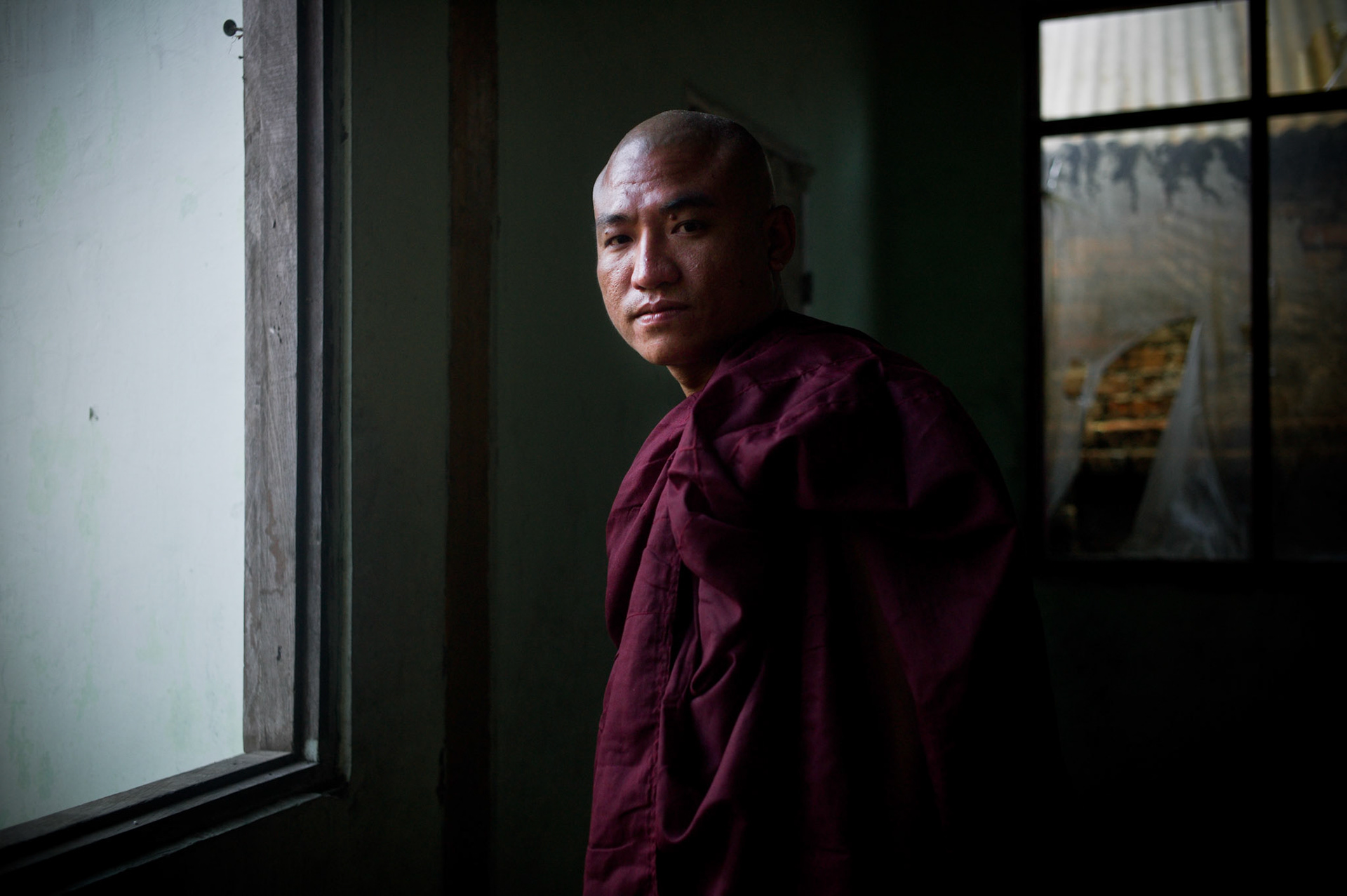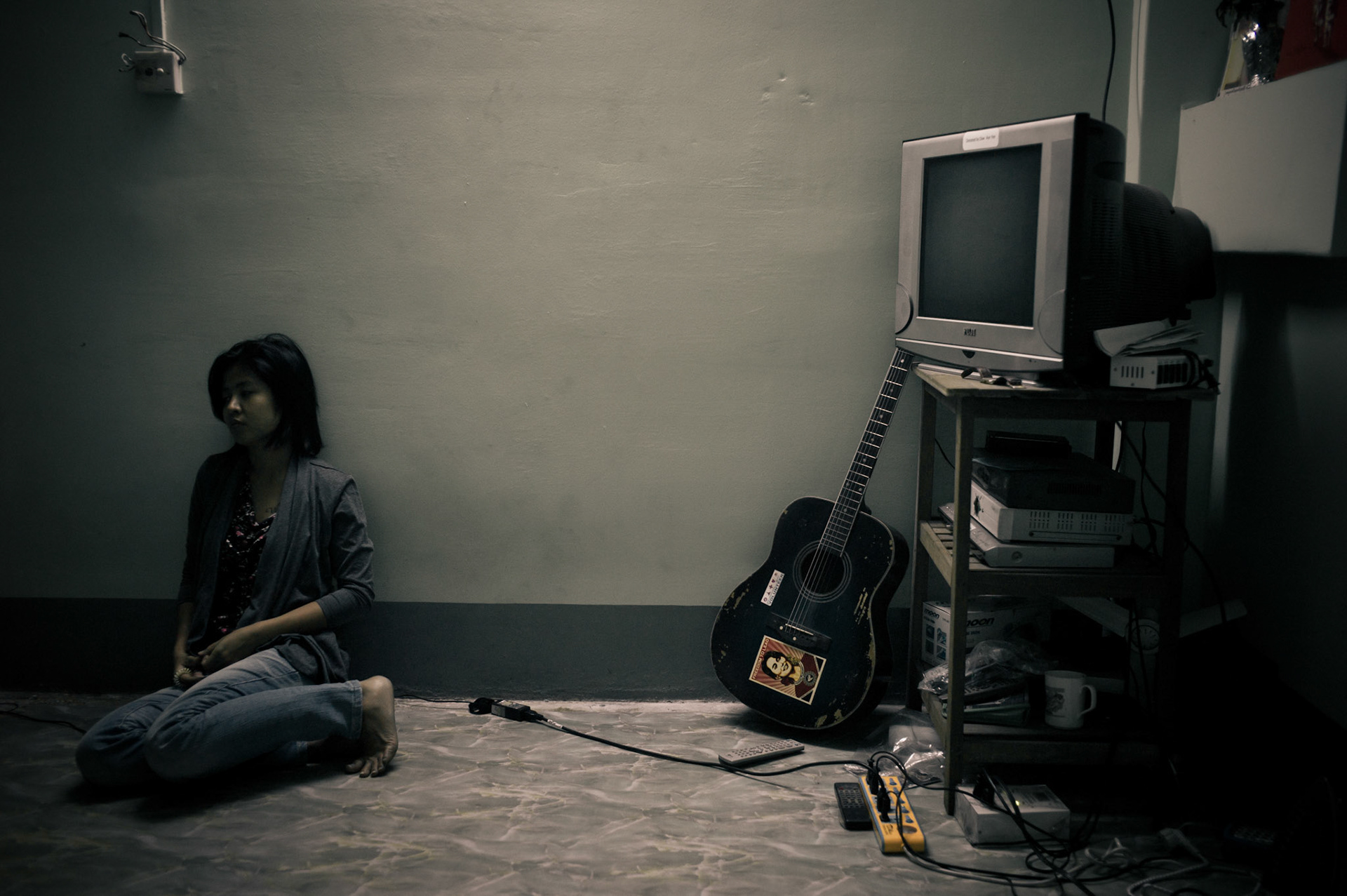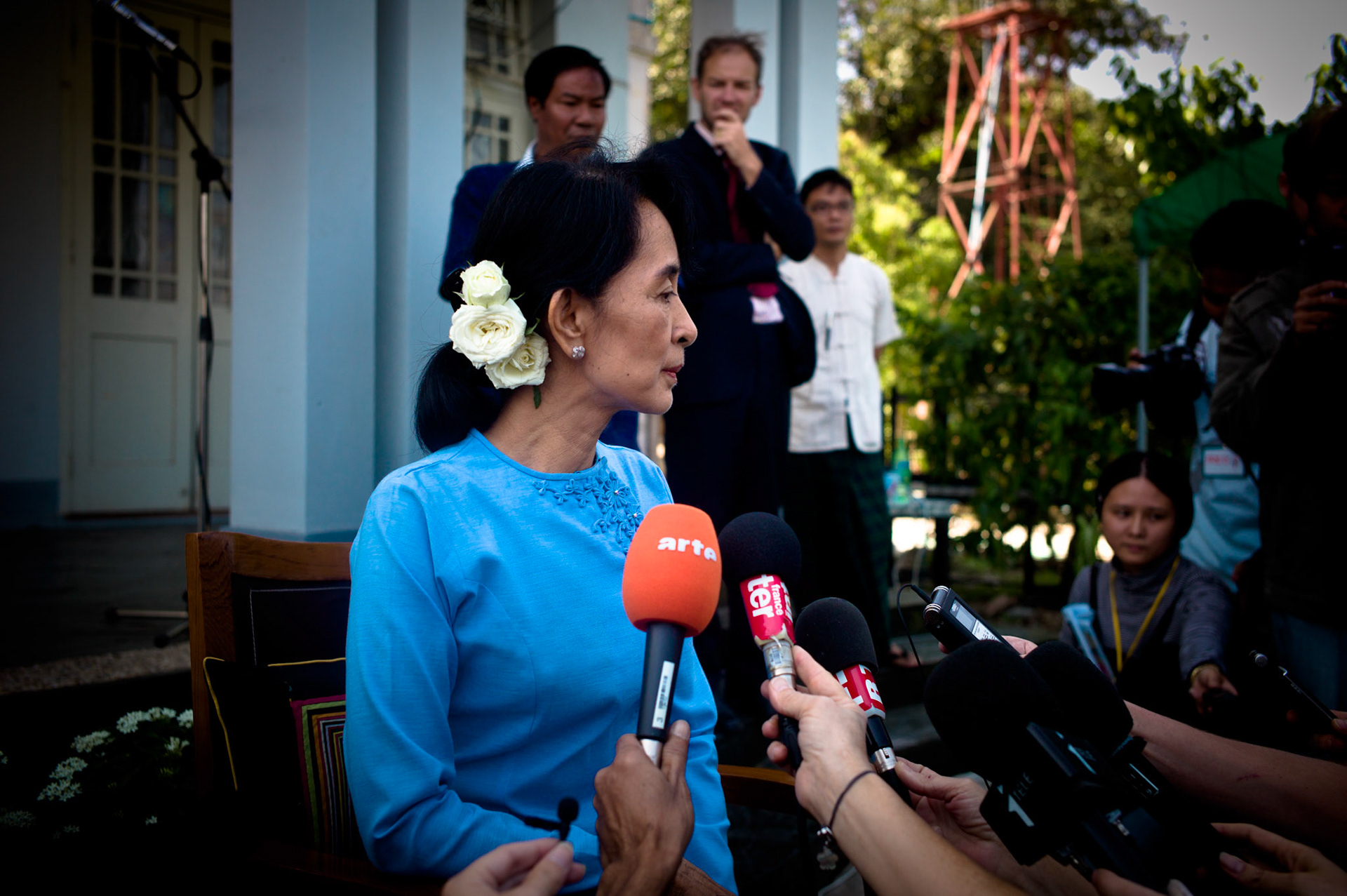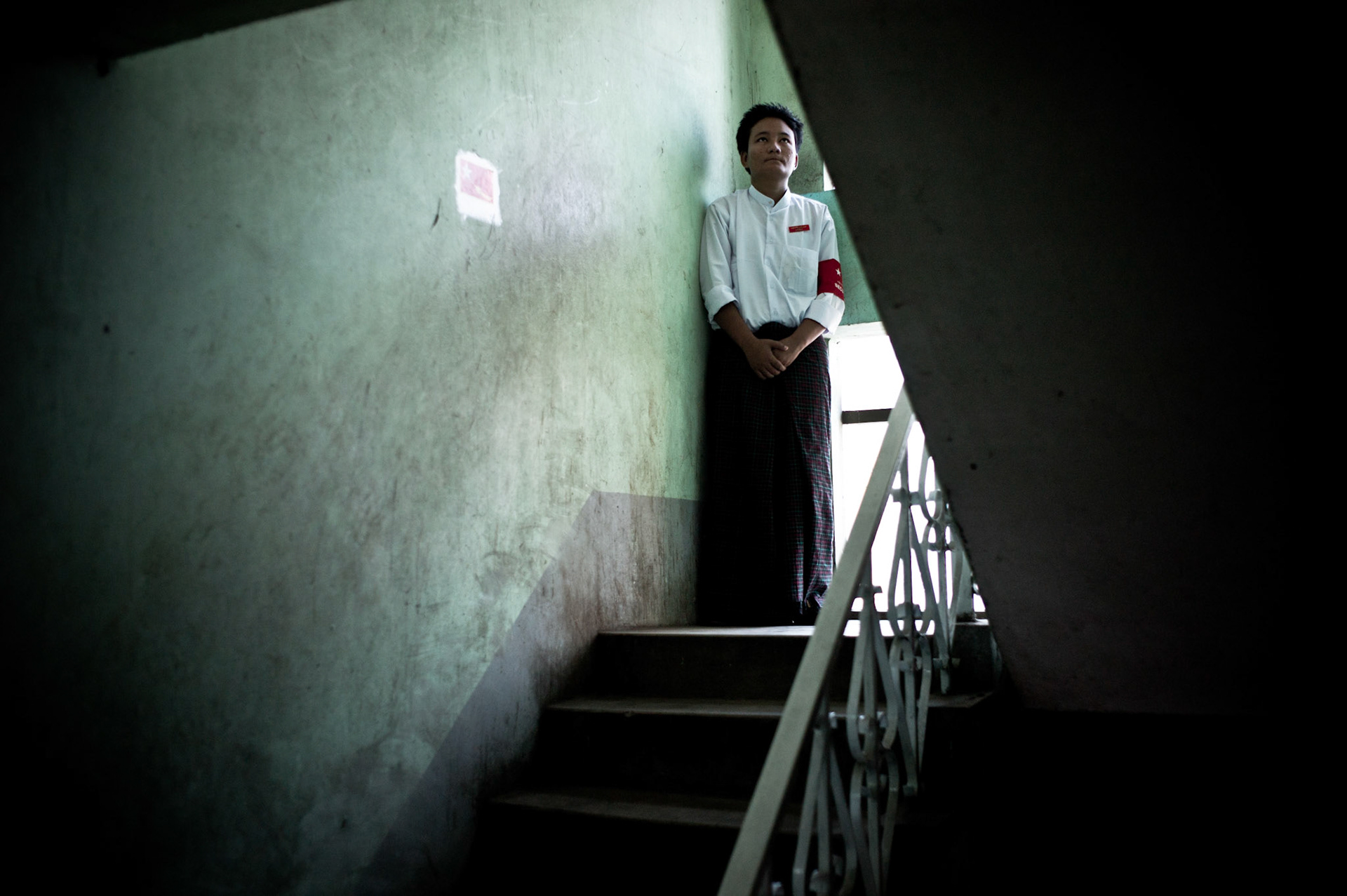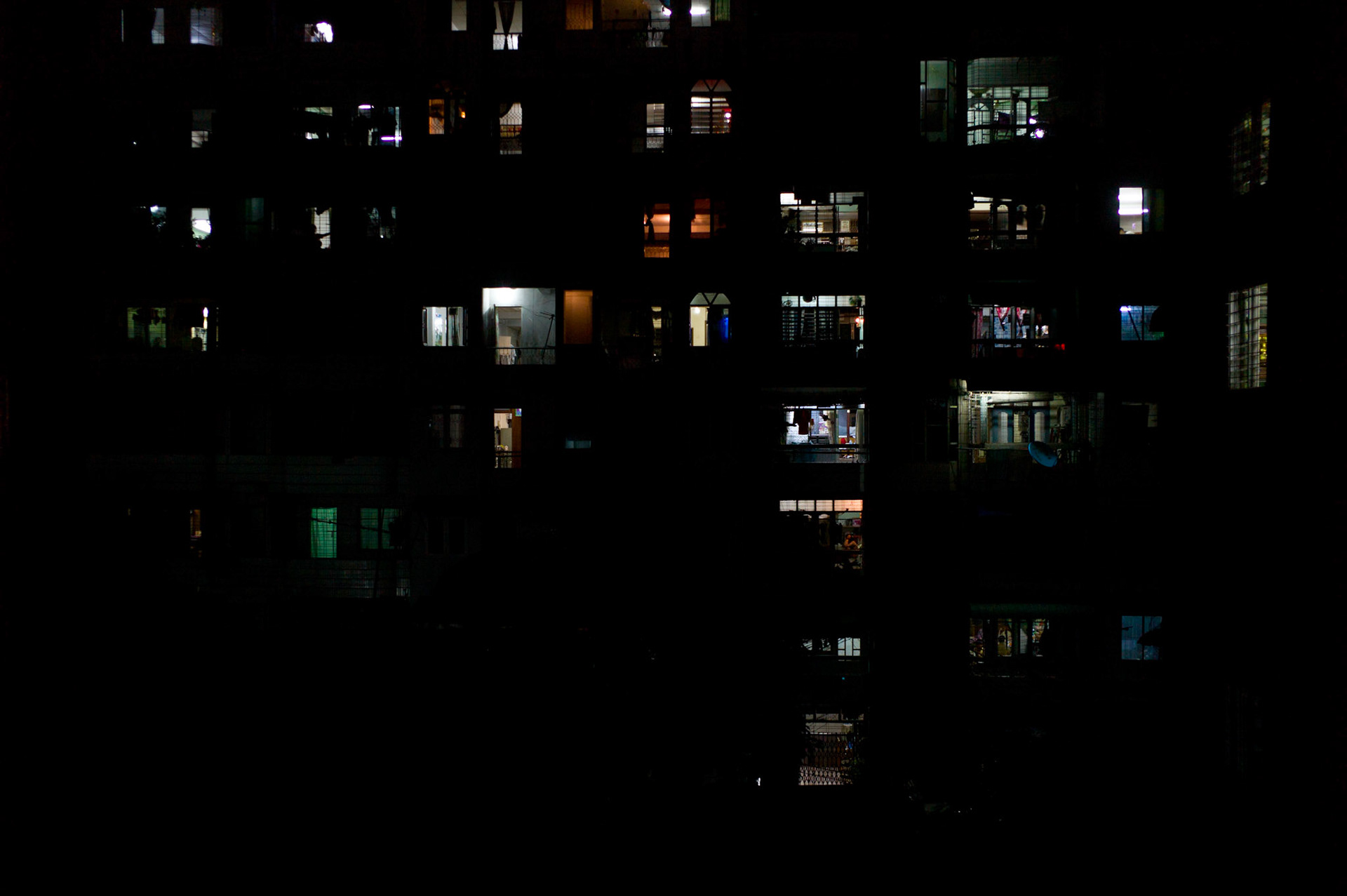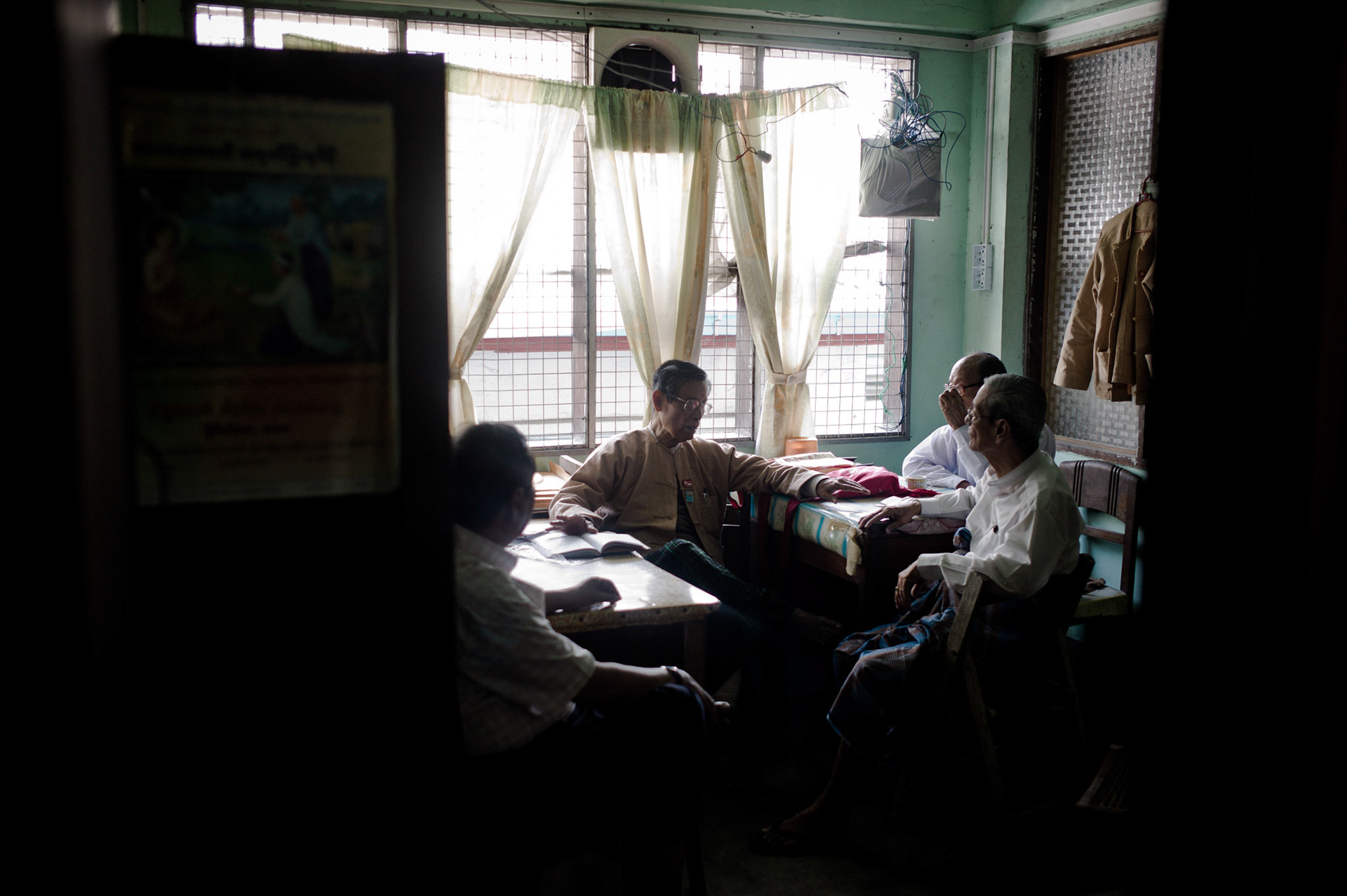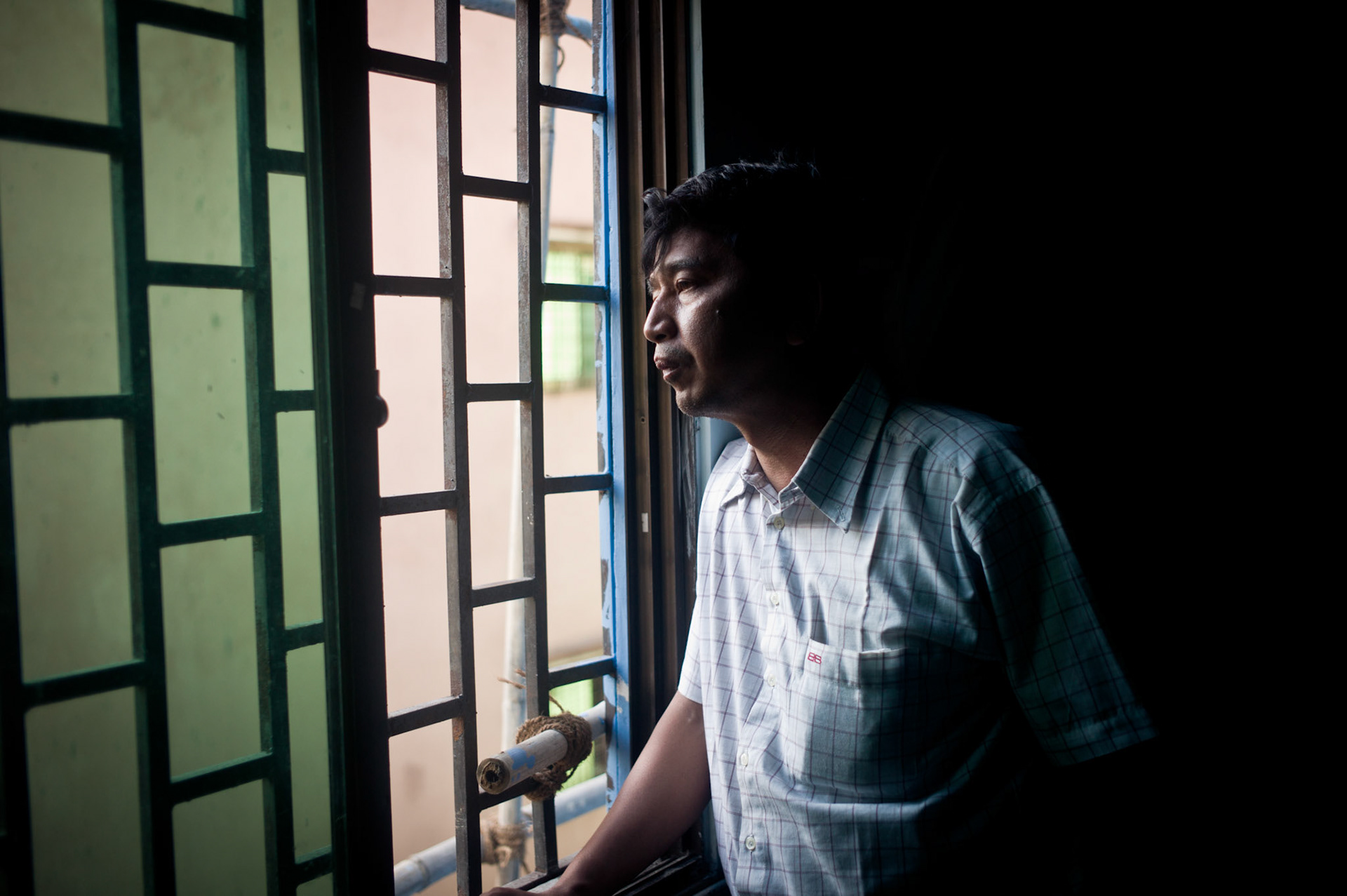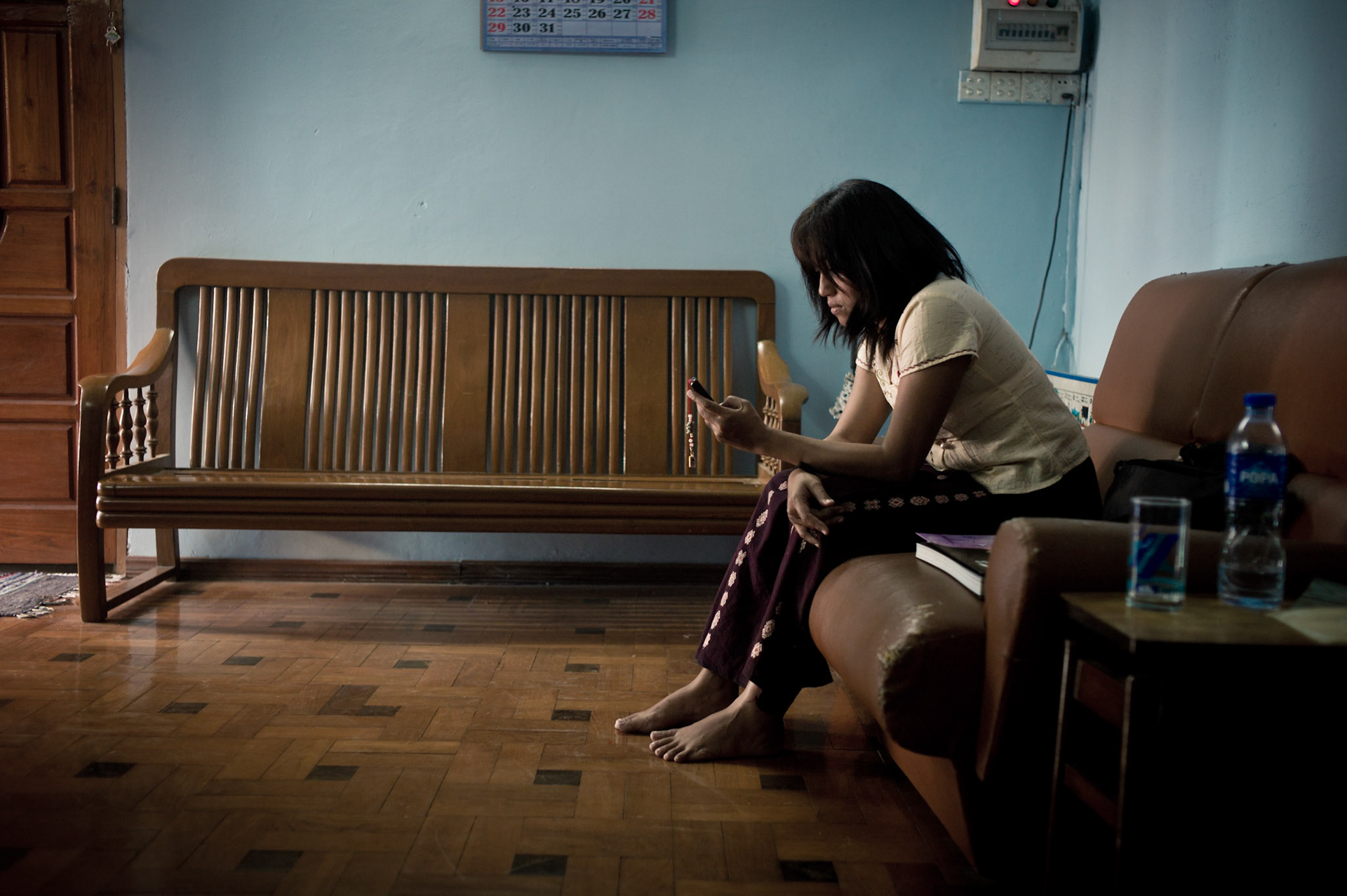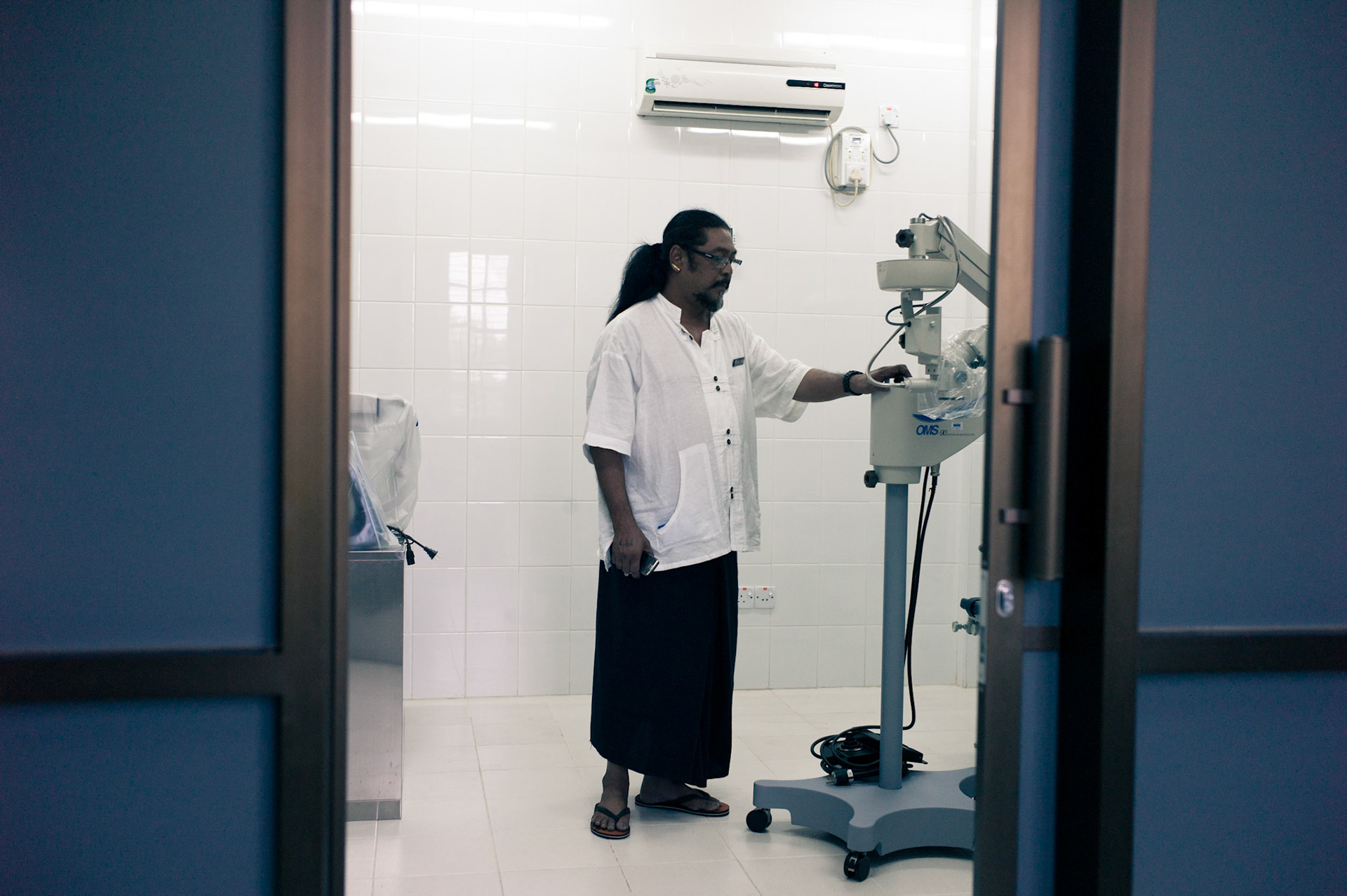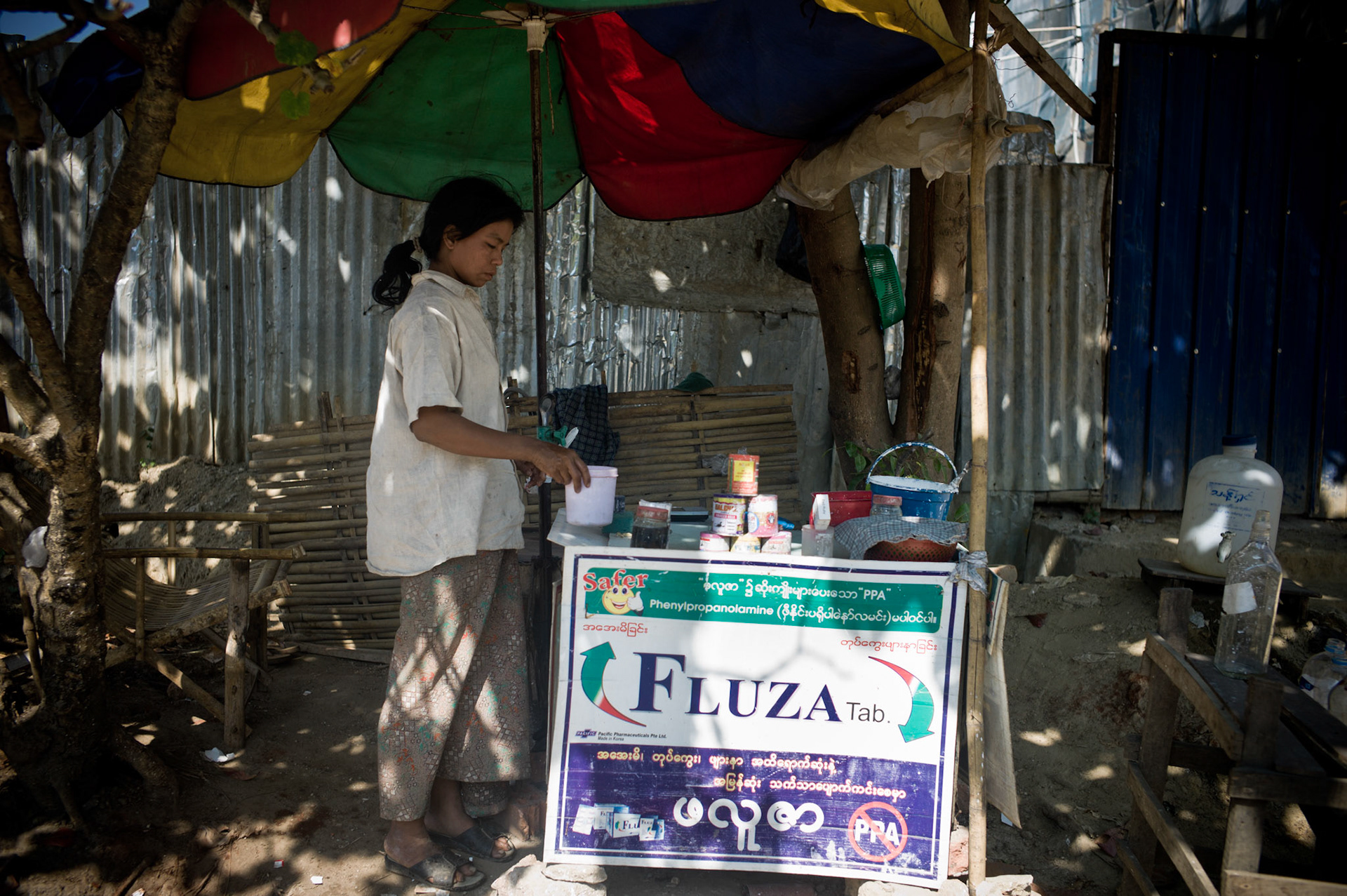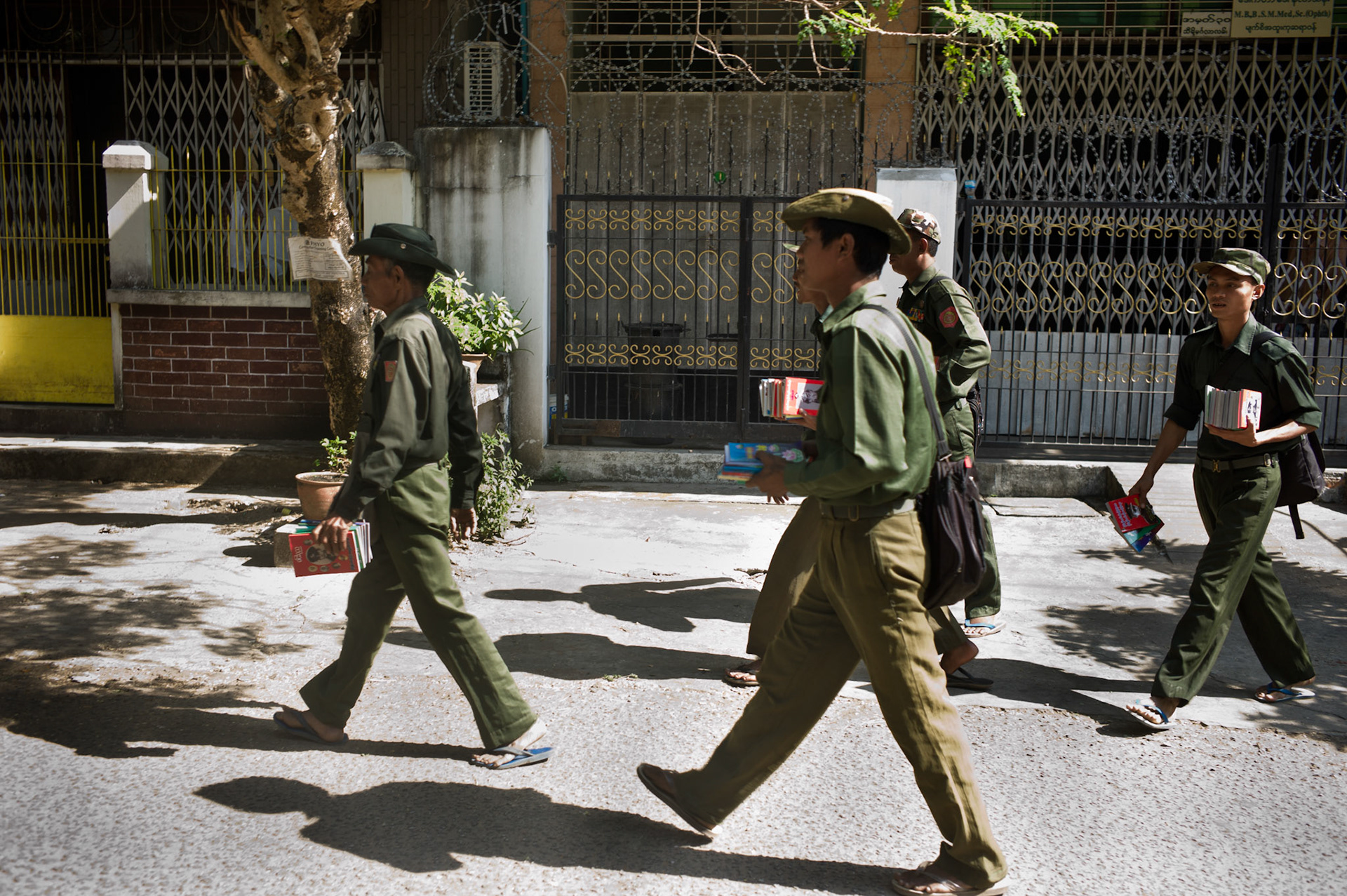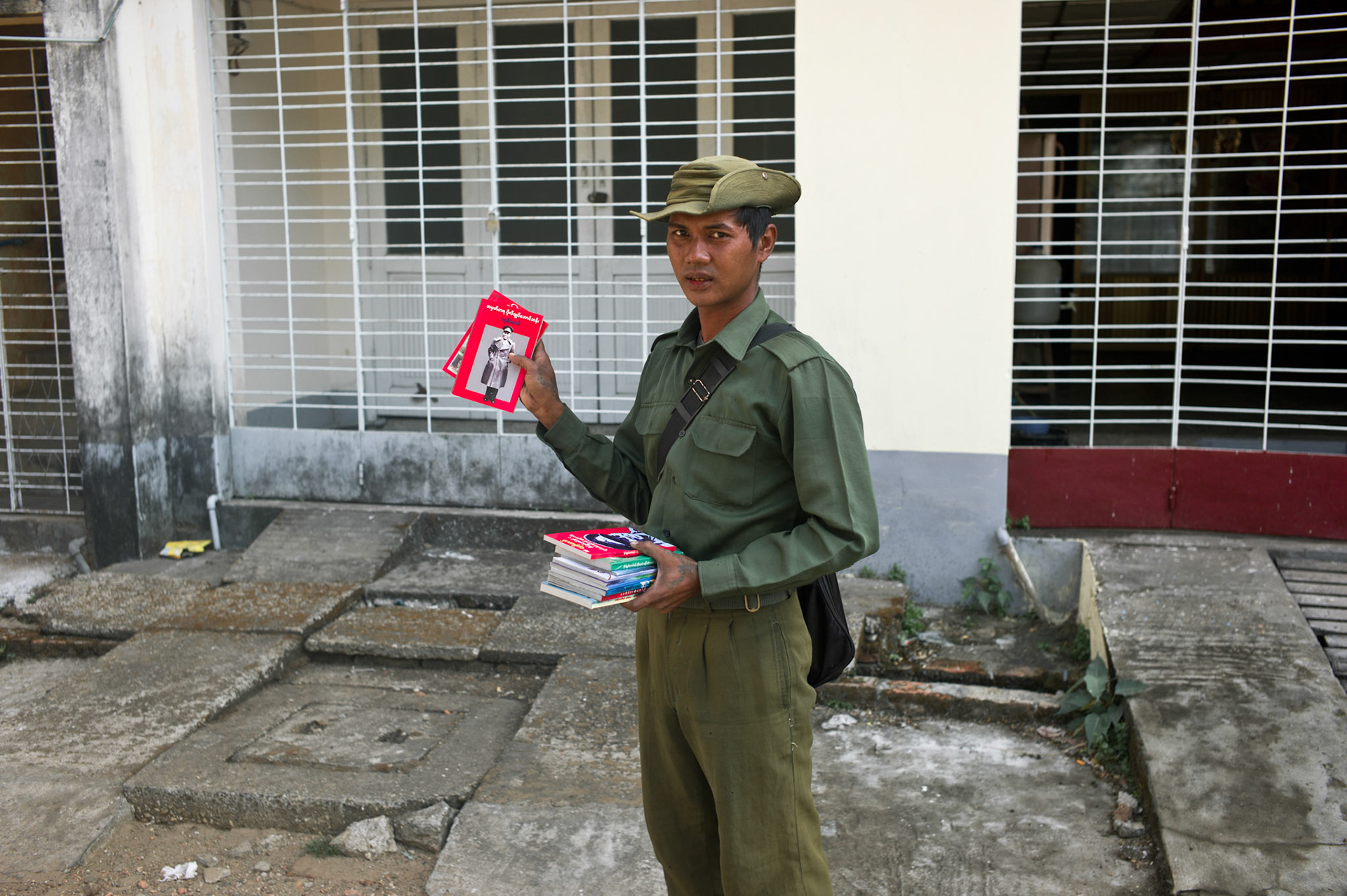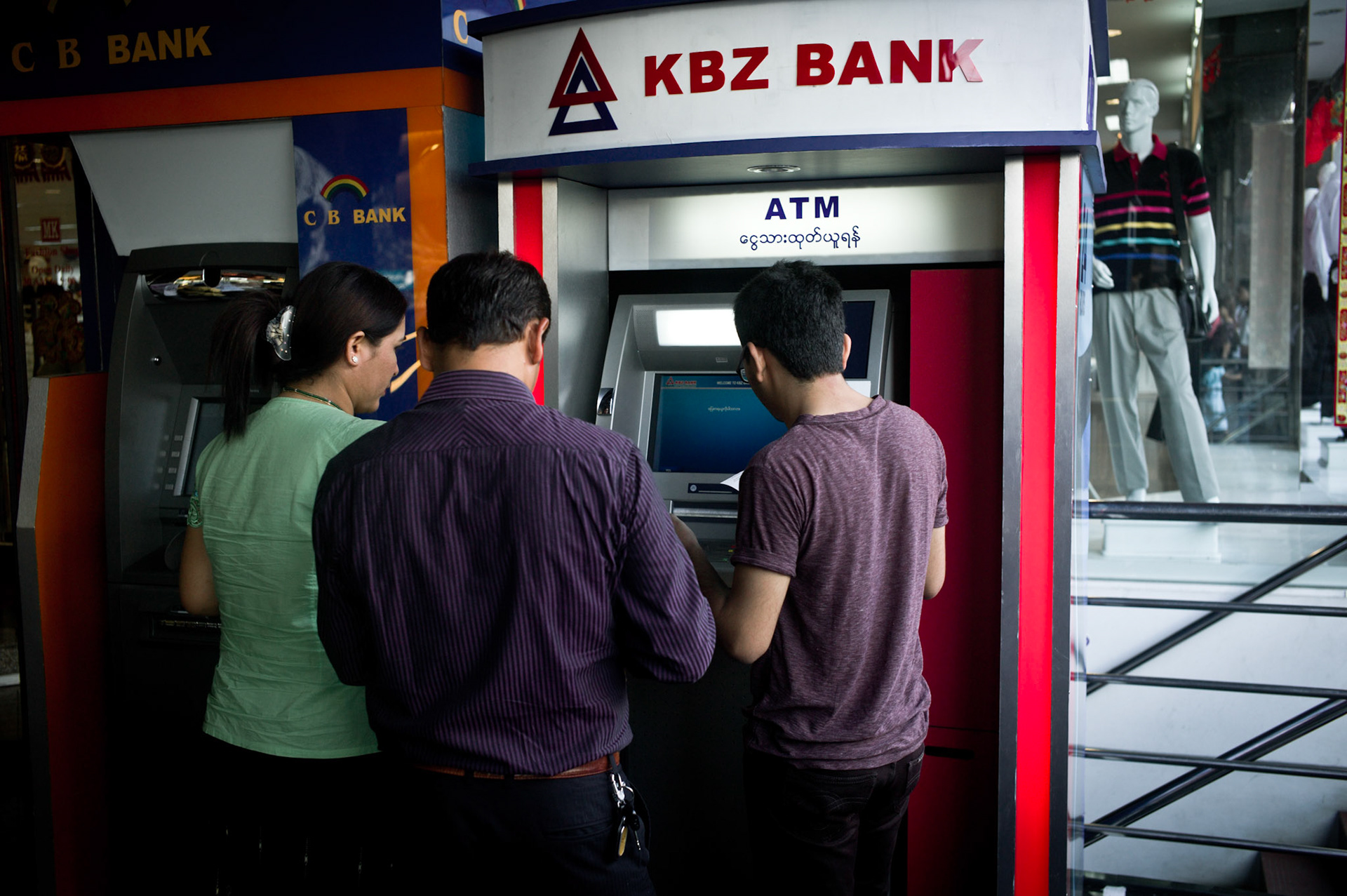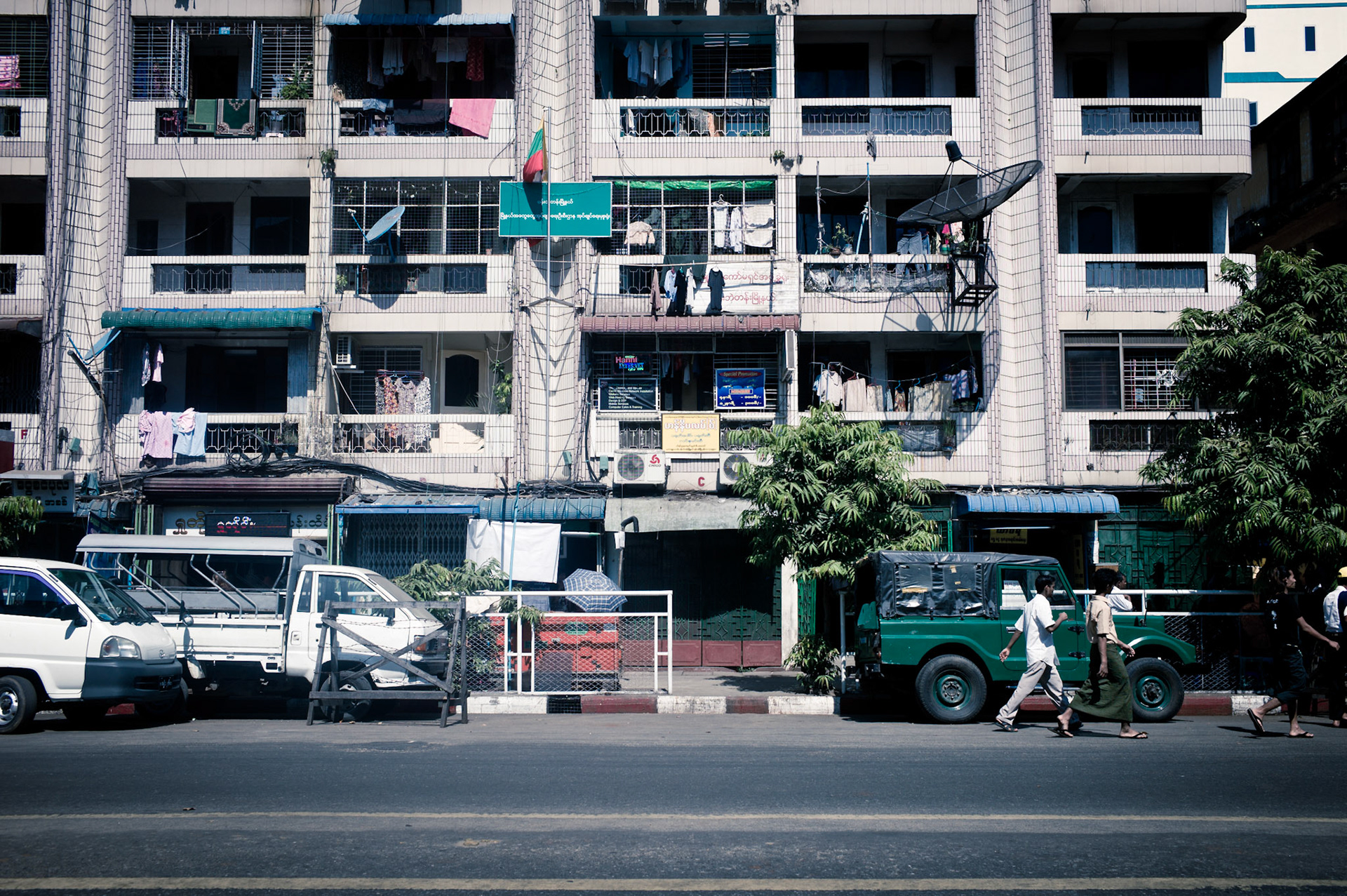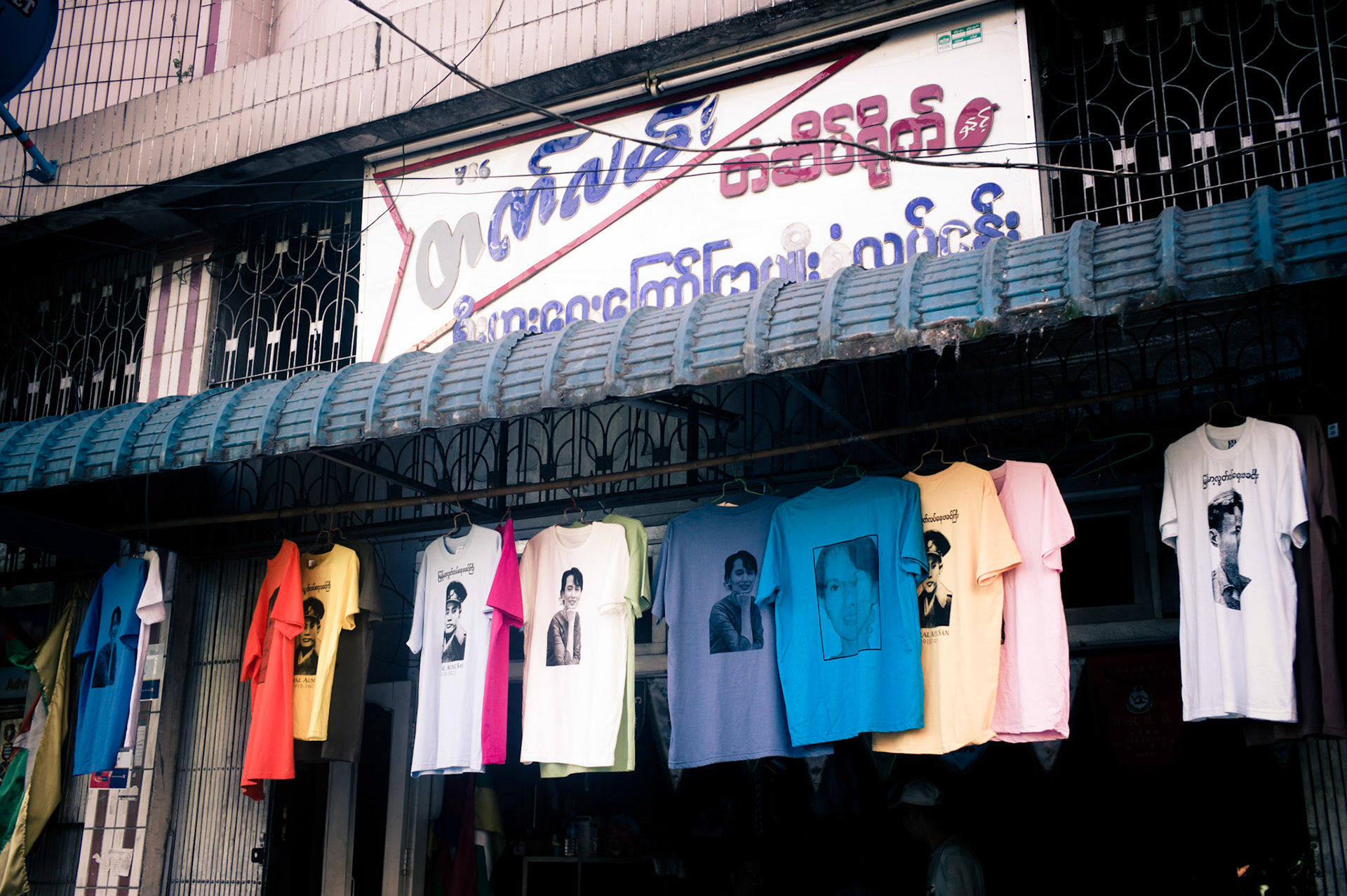
Despite recent changes towards democracy in Burma, the country's dark past still lies beneath the surface. The offices of the Burmese government's mouthpiece, the 'New Light of Myanmar', house a secret interrogation centre run by Military Intelligence that is still in use today

Members of Generation Wave meet at their secret office in Rangoon. Founded in the aftermath of the 'Saffron Revolution' in 2007, Generation Wave is an organisation of young social and political activists in Burma. Working closely with other politically active groups they are striving to promote democracy and human rights and have carried out a number of high profile campaigns, in particular calling for the release of all political prisoners. Until January 2012 there were 21 members of the organisation who were jailed for their political activities.

Plain clothed Military Intelligence officers photograph political dissidents and opposition party members including the 88 Generation Students and leading members of the National League for Democracy at a ceremony being held in a monastery in Rangoon. Underneath the veil of the new Burmese Government's democratic change the oppressive nature of the previous military regime continues unabated in Burma

The National League for Democracy open a new office in Mingalar Taung Nyunt Township, Rangoon as preparations get underway for campaigning in the forthcoming elections. The NLD will compete in parliamentary elections for the first time since 1990 when their general election victory was over-ruled by the military regime

Su Su Nway, a member of the NLD, is one of the most prominent human rights and labour activists in Burma. In 2005 she won an historic legal victory against the junta's long-standing practice of forced labour. However, the outcome also saw her jailed for 9 months in Insein prison. In August 2007 she played a key role in leading protests against the regime and despite going into hiding was finally arrested and sentenced to 8 years in prison. She was released from Hkamti prison under amnesty in October 2011.

A small photograph of General Aung San is stuck to the dashboard of a taxi in Rangoon. Until recently displaying such a picture of either General Aung San or his daughter Aung San Suu Kyi would have resulted in serious repercussion from the authorities and a likely prison sentence

Ludu U Sein Win, one of Burma's most famous and respected journalists is also one of the most outspoken critics of the ruling regime. For decades his articles and writings have openly defied the authorities strict censorship rules but his condemnation has has had its price to pay. In 1967 he was sentenced without trial to 13 years in prison for his political writings, being jailed in Insein prison and Coco Island. He was released in 1976 but was re-arrested almost immediately and jailed for a further 4 years. He suffered a stroke in prison and despite being paralysed in his right side and in need of oxygen to aid his breathing he continues to defy the regime in writing two articles every day under a guise of different pseudonyms.

A mother with her two young children begs on the streets of downtown Rangoon as a well-heeled lady walks by. Over the past few years a shift in society has developed in Burma with the emergence of a 'wealthy class' however the country is still poverty stricken with many surviving on no more than $1 per day. Burma, a resource rich nation, has become one of the poorest in the world with estimated more than 30% of the population living on or below the poverty line and where the ruling military regime spend less than 2% of GDP on education and healthcare combined.

Twenty three year old Yin Yin Aye was diagnosed with HIV six months ago. She has been at the clinic for one week and has now started to receive ARV treatment. Phyu Phyu Thin’s HIV/AIDS clinic in South Dagon, Rangoon, where more than 200 patients receive free treatment and care. There are an estimated 336,000 HIV positive people in Burma, yet only 10% receive treatment in a country where the government spends the least percentage of its GDP on health care of any country in the world.

Phyu Phyu Thin attends to 16 day old baby girl Shi La Nyunt who has tested negative despite her mother being HIV positive. The HIV/AIDS clinic in South Dagon, Rangoon, provides more than 200 patients with free treatment and care. There are an estimated 336,000 HIV positive people in Burma, yet only 10% receive treatment in a country where the government spends the least percentage of its GDP on health care of any country in the world.

Daw Htwe Kyi and her 45 year old daughter Ma Win Ma who has been recently confirmed HIV positve. Ma Win Ma has started a programme of ARV drugs to combat the onset of the illness at Phyu Phyu Thin’s HIV/AIDS clinic in South Dagon, Rangoon, where more than 200 patients receive free treatment and care. There are an estimated 336,000 HIV positive people in Burma, yet only 10% receive treatment in a country where the government spends the least percentage of its GDP on health care of any country in the world.

Newspapers on sale in downtown Rangoon are filled with images fo reently released political prisoners including leading dissidents from the 88 Generation Students and ethnic and opposition parties. Whilst the notorious Press Scrutiny Board appears to have relaxed censorship in allowing journalists to more freely report political issues previously deemed too sensitive, the draconian press laws still remain in place and can result in lengthy prison sentences should the authorities decide

Kyi Than, a former political prisoner, spent more than 10 years in jail due to his political activities. He was released in January 2012 under a presidential amnesty, however he is suffering from cancer and is severely ill. After his release from prison the authorities provided no healthcare or assisatnce at all. Healthcare in Burma's notorious prisons is virtually non-existant and most political prisoners have to rely on family and friends for medcines

Crowds overwhelmed with joy mob Nilar Thein, Ko Jimmy and Phyu Nay Kyi as they try to leave the airport

Htay Kywe, Min Ko Naing and Ko Jimmy, the leaders of Burma's 88 Generation Students at home just days after their release from prison. The three men had their 65 year sentences quashed under a presidential amnesty in January 2012. As Burma's most prominent dissidents they have paid a huge price, each spending almost twenty years in jail for their political activities in trying to bring about democracy to Burma

Social media and networking is beginning to play a significant role in daily life. Burmese youths spend much of their free time chatting on the internet and in particular on Facebook and other social networking sites. Previous restrictions on internet use have been lifted, however the intelligence services still monitor internet use and cyber cafes and the draconian laws that have seen many jailed for using the internet to contact exiled organisations and media still remain in place

Daily life on the streets of Rangoon where young children too often are forced to leave school and work to help makes ends meet and for families to survive. Burma, a resource rich nation, has become one of the poorest in the world with estimated more than 30% of the population living on or below the poverty line and where the ruling military regime spend less than 2% of GDP on education and healthcare combined.

Sithu Maung and De Nyein Lin, both leading members of the All Burma Federation of Student Unions (ABFSU) were both arrested for re-forming the outlawed organisation and their roles in leading the Saffron Revolution in 2007. Sithu Maung was sentenced to 11 years and whilst De Nyein Lin managed to evade arrest for over a year he was finally caught and sentenced to 15 years in prison. Both young men were released in January 2012 under a presidential amnesty and along with their colleagues, many of whom were also released, they have re-formed the ABFSU once again and continue their work to bring democracy to Burma in spite of the fear of re-arrest due to their political ativities

Buddhism plays a hugely significant role in daily life in Burma, where over 90% population are Buddhist and look to the monks for guidance and leadership in particular in times of strife, upheaval and need. Throughout history the monkhood has equally played a role in political activism and most prominently through leading mass demonstrations in 2007. Still today many monks remain behind bars whilst those who are involved in politics risk ongoing persecution

U Eindaka, the abbot of Maggin monastery, stands in the middle of a room surveying the remnants of the devastation caused four years ago when he and his fellow monks were arrested. On September 26th 2007, at the height of Burma's monk led Saffron Revolution, Maggin Monastery in Rangoon, was raided as the regime commenced its brutal crackdown on the protests. On 13th January 2012 the monks were released from prison and more than four years since the monastery was raided and locked, they returned and opened the doors once more. Everything they found was exactly as it was left the night the military regime arrested them and ransacked the buildings.

Robes torn from the bodies of monks as they were arrested in the dark of night on 26th September 2007 still lie on the floor in the doorway. On September 26th 2007, at the height of Burma's monk led Saffron Revolution, Maggin Monastery in Rangoon, was raided as the regime commenced its brutal crackdown on the protests. On 13th January 2012 the monks were released from prison and more than four years since the monastery was raided and locked, they returned and opened the doors once more. Everything they found was exactly as it was left the night the military regime arrested them and ransacked the buildings.

U Gambira, a former child soldier in the Burmese army at the age of 12, became a monk when his parents rescued him from the army. When the 88 Generation Students lead protests against the regime in August 2007 he help found the All Burma Monks Alliance and was instrumental in organising the monk lead Saffron Revolution. He was arrested in November 2007 having been in hiding and was sentenced to 68 years in prison. During his time in jail he was brutally tortured and de-robed from monkhood. He was released from prison on 13th January 2012 under a presidential amnesty and has immediately returned to continue his political activities working to bring democracy to Burma

Members of Generation Wave meet at their secret office in Rangoon. Founded in the aftermath of the 'Saffron Revolution' in 2007, Generation Wave is an organisation of young social and political activists in Burma. Working closely with other politically active groups they are striving to promote democracy and human rights and have carried out a number of high profile campaigns, in particular calling for the release of all political prisoners. Until January 2012 there were 21 members of the organisation who were jailed for their political activities.

Aung San Suu Kyi takes a break from campaigning to answer questions at a press conference held at her home in Rangoon. The leader of the National League for Democracy is standing as a candidate in the forthcoming bi-elections in Burma

Youth members of the National League for Democracy provide security for Aung San Suu Kyi wherever she goes as the Burmese authorities provide no assistance at all. In 2003 she escaped with her life when hundreds of her party were attacked and killed during an ambush whilst she was campaigning in Depayin.

Electricity is scarce in resource rich Burma. In Rangoon the city is constantly plunged into darkness as the power is turned on and off by the authorities and households and shopkeepers have to rely on generators instead

Former Vice Chairman of the party, U Tin Oo meets with other senior Executive Committee members of the NLD in the office upstairs. The run down office that is the headquarters of Burma's opposition party, the National League for Democracy, has once again become a hive of activity as the party reforms and with democracy icon Aung San Suu Kyi at the helm, leads the way to bring democratic change to the country

Min Ko Naing, founder and Chairman of the ABFSU and leader of the 88 Generations Students, is one of Burma's most prominent opponents of the military regime. He led the student uprising in 1988 but was arrested a year later and jailed for 16 years. Released in 2005, along with colleagues, he formed the 88 Generations Students group. In August 2007 he led peaceful protests through the streets of Rangoon that would lead to the Saffron Revolution, but he was arrested and sentenced to 65 years in jail. On 13th January 2012 he was released from Thayet prison under a presidential amnesty and along with the 88 Generation Students he is set to play a critical role in shaping Burma's future

Mie Mie, a leader of the 88 Generation Students, participated in the 1988 uprising as a high school student and member of the ABFSU, DPNS and worked for the NLD. She was first arrested for 3 months in 1989 but in 1996 was involved in student protests and was jailed for 7 years. In August 2007 she lead protests in Rangoon but went into hiding when her colleagues in the 88 Generation Students were arrested. She was finally caught in October 2007 and was sentenced to 65 years. She was released from Katha prison on 13th January 2012 under a presidential amnesty

Kyaw Thu stands in the Operating Theatre at the Thukha Free Clinic at the Free Funeral Service Society. Despite providing free medical care, the authorities have refused to allow him to use the operating theatre so the equipment is left standing unused

Under the cover of a street vendor selling betel nut, an informer working for military intelligence monitors people walking towards the headquarters of the National League for Democracy. As they walk ast she calls the intelligence officers who are posted outside the NLD office so they can be ready to photograph those who enter. The pervasive nature of fear runs deep in Burma, where informers sit watching at every street corner

Soldiers from the Burmese army, the Tatmadaw, walk the streets of downtown Rangoon selling books about General Aung San. As founder of Burma's army and gaining the country's independence, he plays a hugely important role in society. However for decades his image and that of his daughter Aung San Suu Kyi have been outlawed from being on display and punishable with imprisonment if caught

Despite spending half of the national budget on the army, dissent amongst the rank and file soldier is rife as low pay has forced many to desert or find other ways to survive. The military also still controls the government and with it the country too. With a guaranteed 25% of seats for the military and the ability to seize power at any moment in 'the interest of the nation's security', Burma's new constitution is one of the main stumbling blocks to bringing true democracy to the country

An ATM machine for KBZ bank is opened in downtown Rangoon. The financial system in Burma has collapsed numerous times over the past decades, most notably in 1988 when the currency was devalued overnight. The black market has historically dictated the exchange rate but recent reforms have lead to an official exchange rate finally being launched in April 2012 and discussions with the IMF and World Bank take place as the government desperately tries to entice foreign investment

A local USDP office in Pabedan Township, Rangoon that is also used as a secret interrogation centre by Military Intelligence. The Union Solidarity and Development Party, USDP, currently dominate Burma's new parliament and have long been associated with the former military regime, now being merely seen by many as a proxy political party for the former Generals

For decades the mere sight of an image or photograph of Aung San Suu Kyi would be enough to strike a combination of hope and fear into the heart of anyone. It woudl alos have been enough to be jailed under the previous hardline rule of Senior General Than Shwe. Whilst now t-shirts, flags and posters of the Lady are openly traded on the streets of Rangoon only time will tell if the democratic process underway is more than as superficial as ink on cotton
